
Recent Photographs by Micah Cash
This installation features images from Micah Cash’s two most recent books—Waffle House Vistas (published in 2019 and expanded and republished in 2022 by the Bitter Southerner) and Dangerous Waters: A Photo Essay on the Tennessee Valley Authority (published in 2017 by the University of Tennessee Press.) Micah Cash uses the visual languages of landscape and architecture to explore narratives of…

I Always Come Back to Savannah: The Art of Myrtle Jones
Myrtle Jones, an accomplished artist, is closely associated with Savannah, her home for most of her adult life. Born in Forsyth County, Georgia, she grew up in Winder, Georgia, and worked as a hairdresser before moving to Savannah in 1943. She first took up painting in 1950, when she studied at the Telfair Academy of Arts and Sciences with Emil…

The First Moment’s Observation: Paintings by Nicholas Kilmer
Nicholas Kilmer, a native of Washington, D.C., grew up in Virginia, attended American University, the Catholic University of America, and Georgetown University. After earning a master’s degree at Harvard University, he embarked on a decades-long career in education. In 1988 he founded Nicholas Kilmer Fine Art and has devoted himself primarily to his painting ever since. Since the 1970s, he…

A Lasting Legacy: Paintings by Jim Lyle
Jim Lyle, born in Corpus Christi, Texas, and raised in Brightwaters, New York, earned a bachelor of fine arts degree from the University of Arizona in 1967. He went on to earn a master of fine arts degree with a concentration in ceramics from Tulane University in 1969 and pursued additional study at Long Island University and Alfred University. He joined…

Apokalupsis: An Uncovering: The Artwork of Joseph H. Sulkowski
A native of Pittsburgh, Pennsylvania, Joseph H. Sulkowski began his formal studies at the Pennsylvania Academy of the Fine Arts before moving on to the Art Students League in New York City, where he studied from 1974 until 1979. His time at the League led to an apprenticeship with master painter Frank Mason, who became his mentor. Mason, who…
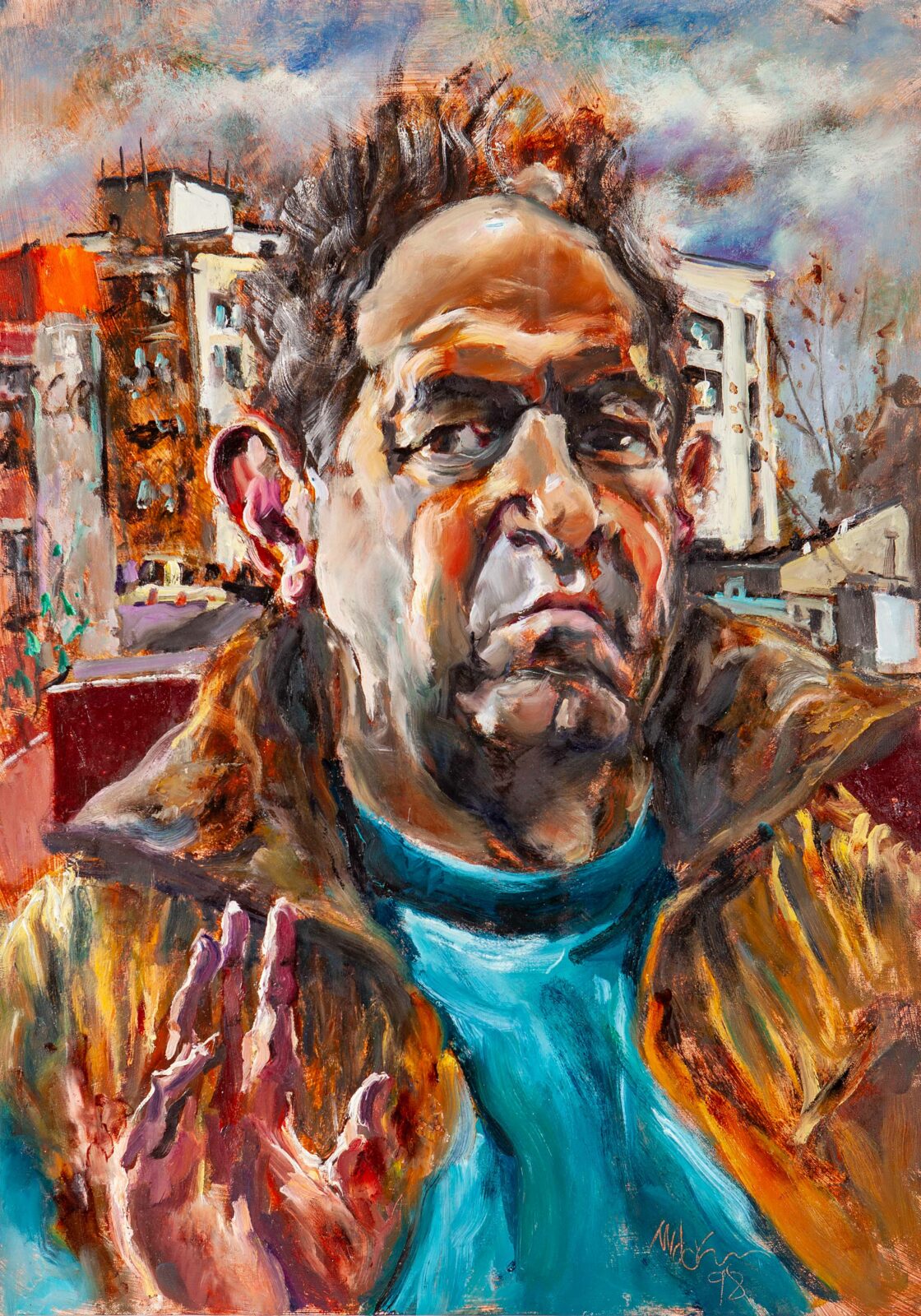
As Others See Us / As We See Ourselves: Artists’ Self-Portraits from the Permanent Collection
The Morris Museum’s collections have unusual depth and richness in types, styles, and mediums of art. For example, the museum’s holdings of folk art, photography, American impressionist painting, and studio art glass are all equally varied and extensive. One of the more intriguing and previously unexplored groups of paintings in the collection is made up of artists’ self-portraits. It is…

Closely Observed: Paintings by Christopher Clamp
Born in Leesville, South Carolina, in 1979, Christopher Clamp earned a bachelor of fine arts degree with a concentration in painting from Winthrop University in 2001. As he has written: I was raised in a small town in South Carolina named Leesville—long since changed to Batesburg-Leesville— that was built on agriculture and textiles. My family— farmers and mill workers all—taught…
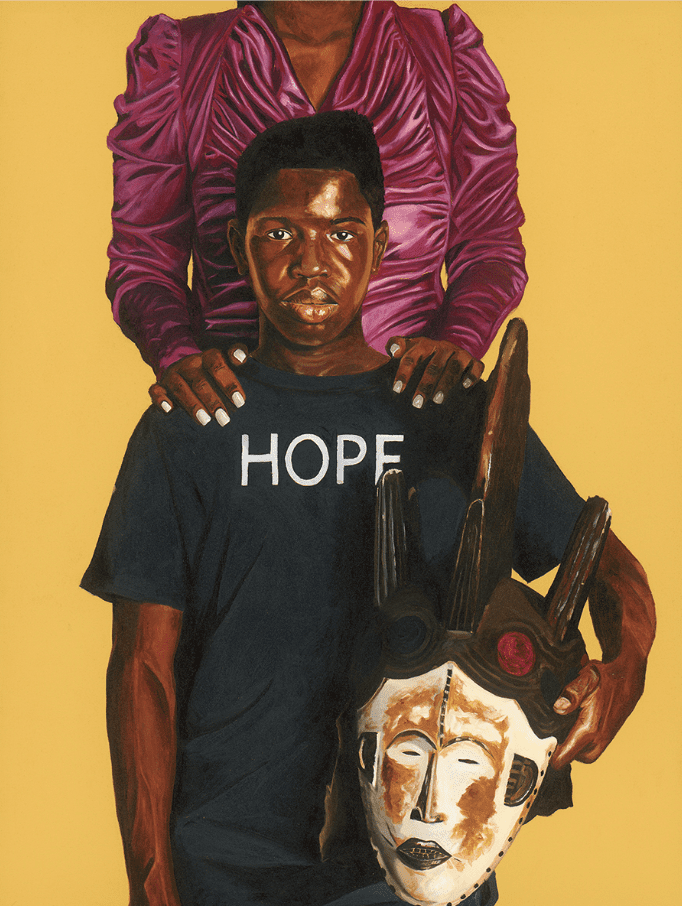
Highlighting Contemporary Art in Georgia: Picture This
This traveling exhibition features the work of twelve painters living and working in Georgia who focus on narrative. They are “a diverse group of artists experimenting in narrative painting,” said Didi Dunphy, director, Lyndon House Arts Center. “Each of their own stylistic interpretations, conceptual investigations, cultural messaging, and beauty are represented in this show.” In this remarkable collection, the artists—each…
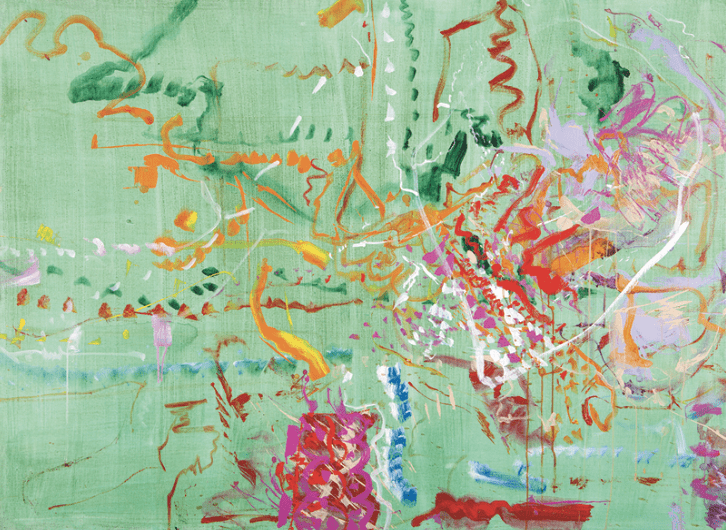
Ancient and Imagined Places: Abstractions by Vincencia Blount
This fall, experience the bold, colorful, and dynamic abstract paintings of artist Vincencia Blount. This exhibition features eight of her large-scale works, which are filled with broad brushstrokes, bleeds and splashes, overlapping textures, and a simply brilliant use of color. Known as Tatty to her friends, Blount was born in Miami, Florida, in 1924. She was bold and prolific, exhibiting…
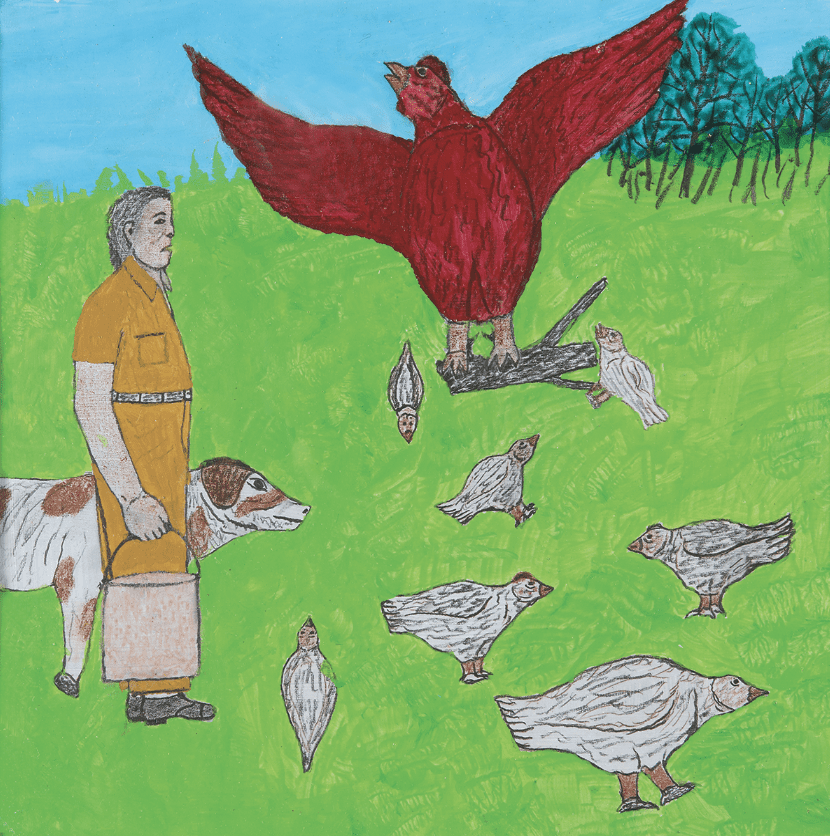
Pappy Kitchens: The Saga of Red Eye the Rooster
A native of Crystal Springs, Mississippi, O. W. “Pappy” Kitchens (1901–1986) didn’t begin painting until his retirement at age sixty-seven. A self-taught artist, his vivid imagination and love for a good story well told led him to take up art. The narrative quality of his work emanates from the traditions of parables and storytelling with which he grew up. Pappy…
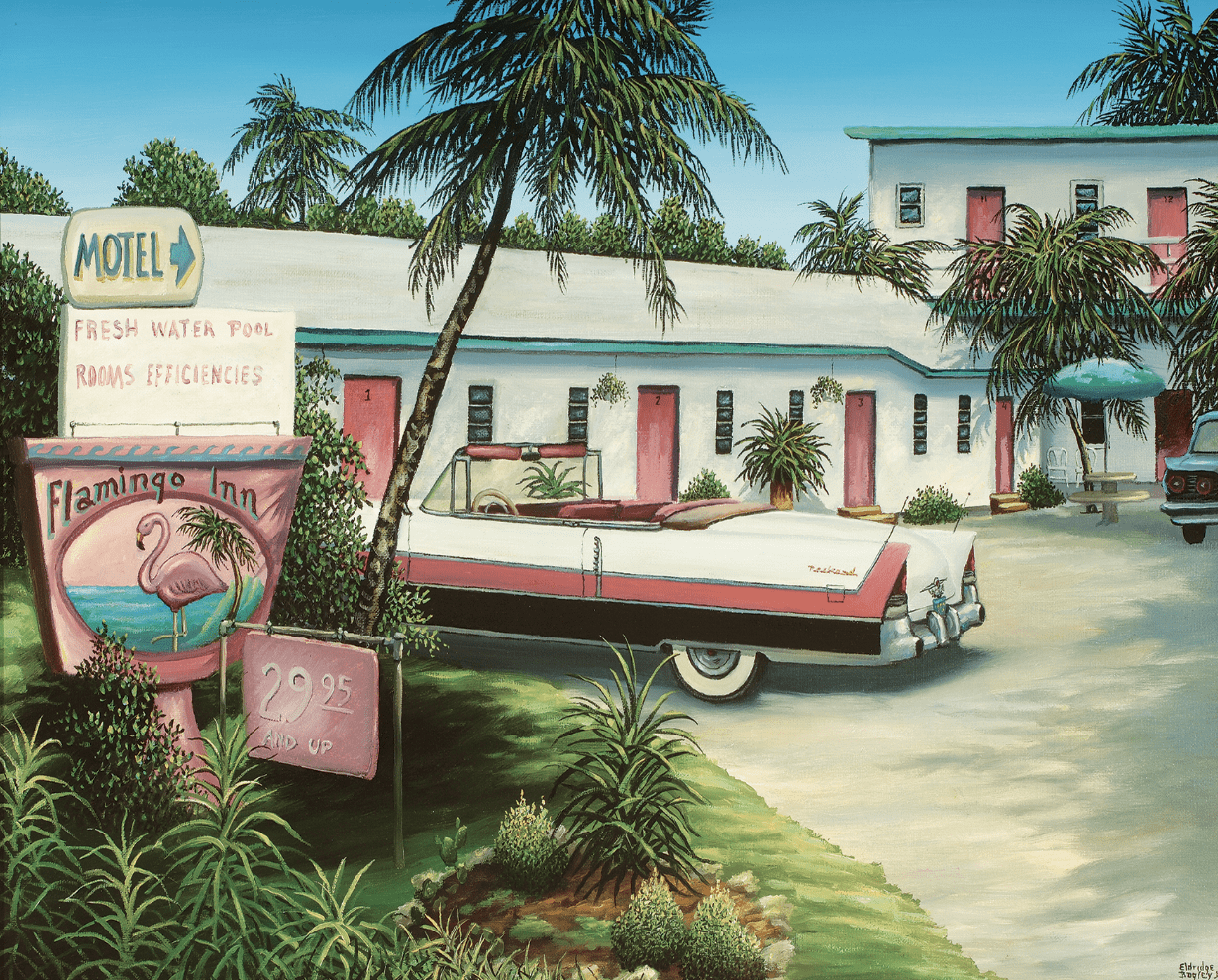
As If Art Itself Devised It: The Virginia of Eldridge Bagley Folk Paintings
A native of rural Lunenburg County in South Central Virginia, Eldridge Bagley, a third-generation tobacco farmer, began painting more than fifty years ago, when he was still living with his parents and working on their farm. Although he insists that he doesn’t live in the past, he has often stated his belief that there are traditions, convictions, and values that…
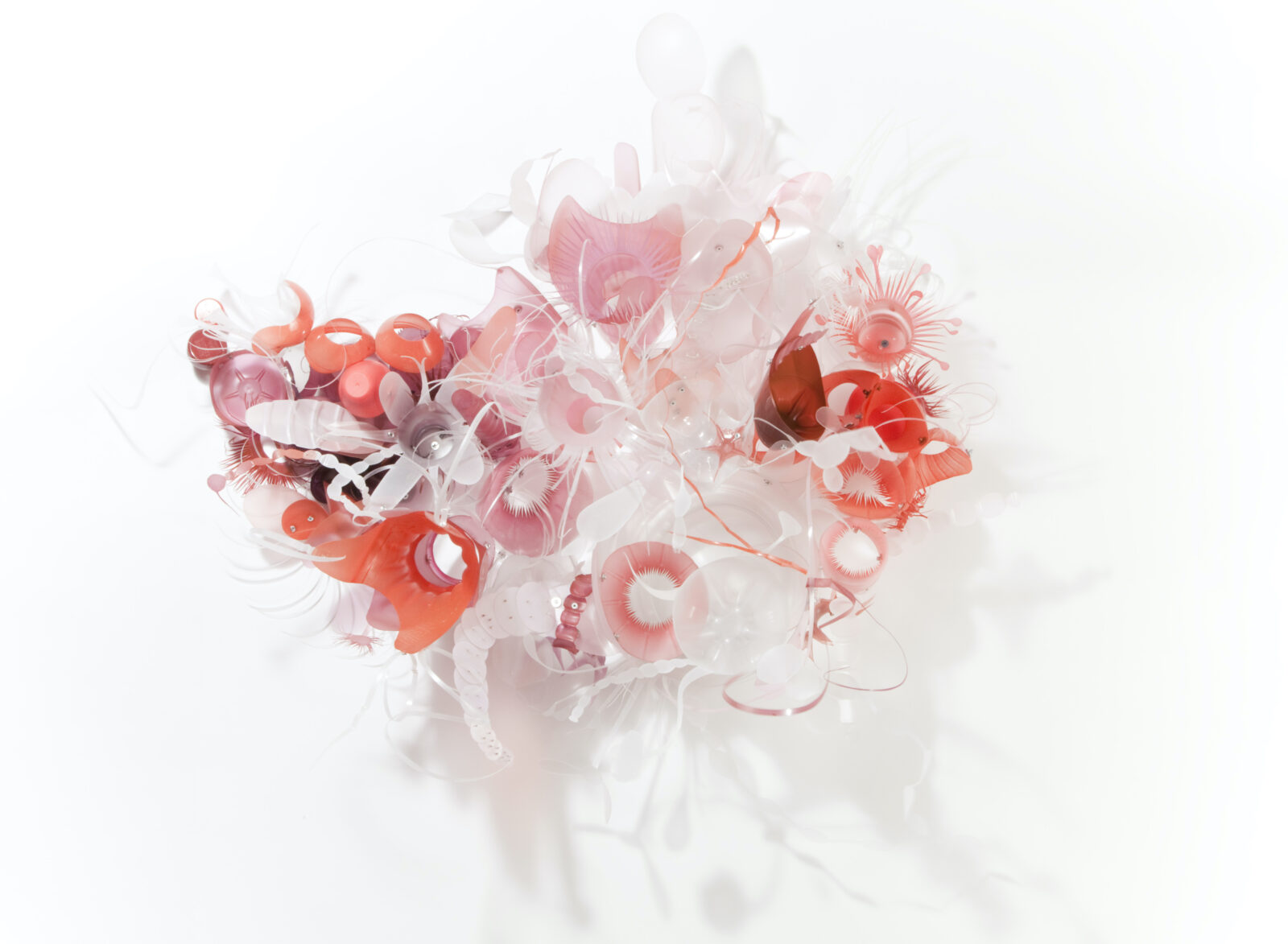
The Long View: From Conservation to Sustainability: Works from the Bank of America Collection
The Long View: From Conservation to Sustainability: Works from the Bank of America Collection examines the evolution of the modern environmental movement and our relationship with the earth and all its inhabitants through eighty-eight works of art, including photographs, paintings, works on paper, and sculpture, that are categorized in four sections. The Beginnings of Conservation features nineteenth- and early twentieth-century artists who influenced the…
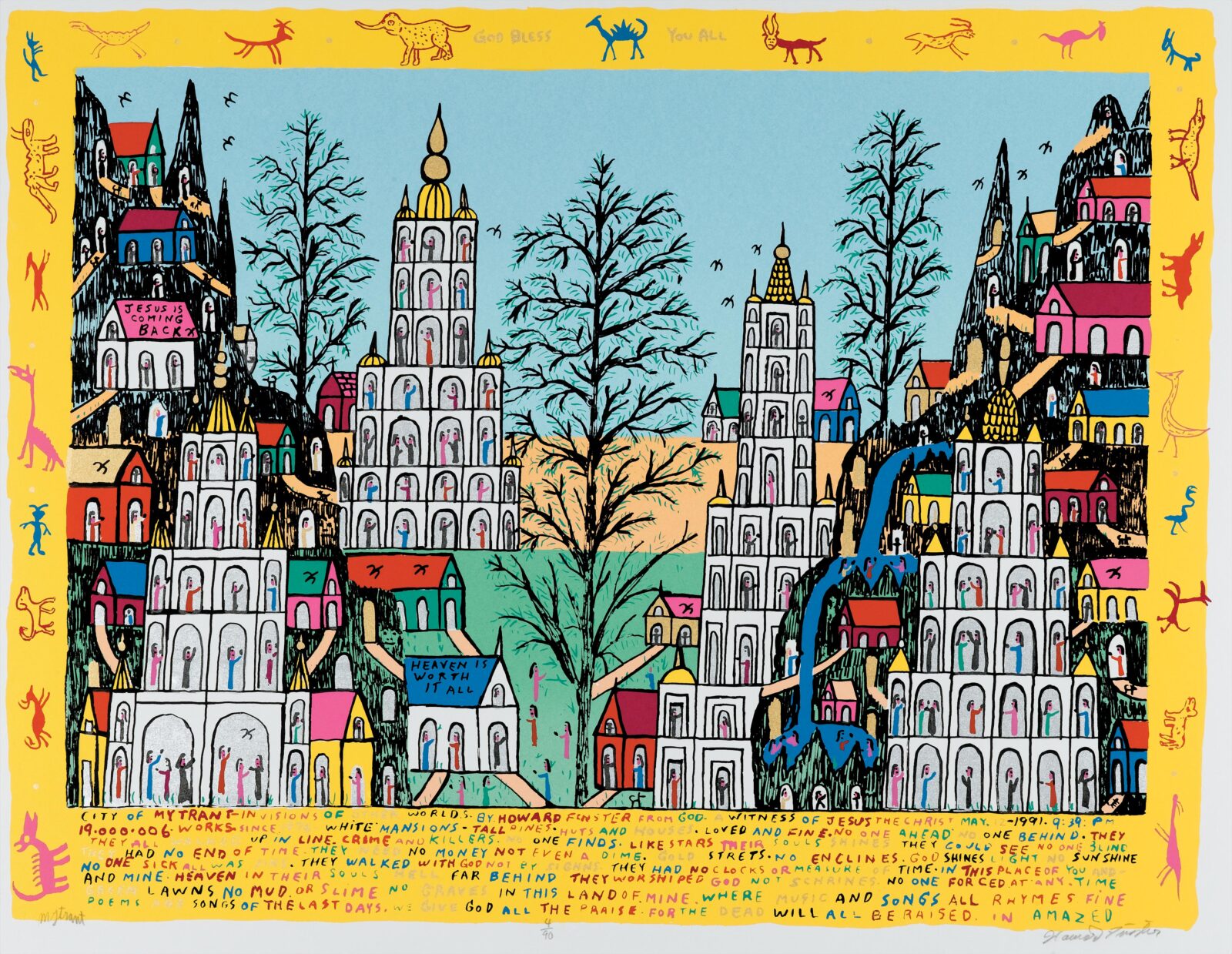
And They All Sang Hallelujah
The cultural landscape of the American South is shaped and often identified by many things, religion among them. In the popular imagination, religion in the South is distinguished not by its denominations—mainly Protestant, often Evangelical—but by its conservative fundamentalist orientation. The single largest denominational body is the Southern Baptist Convention, and the wide distribution of its many churches is often…
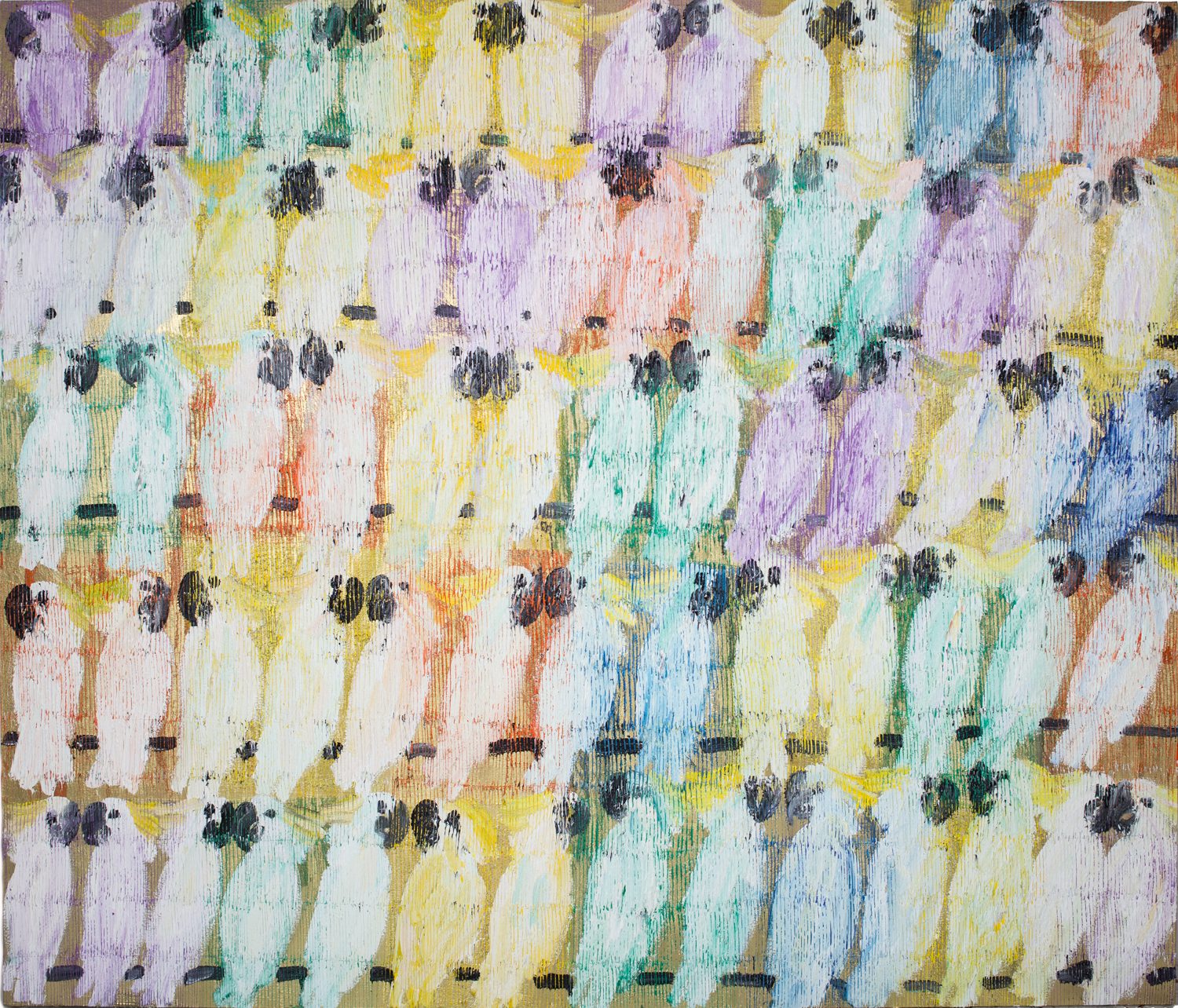
A Hunt Slonem Menagerie
Explore the magic and whimsy of A Hunt Slonem Menagerie, on display at the Morris Museum of Art through June 4, 2023. An explosion of color, this exhibition features large and small scale electric neo-expressionist oil paintings of bunnies, butterflies, and tropical birds by renowned artist Hunt Slonem. Hunt Slonem was born in 1951 in Kittery, Maine, where his father, a…
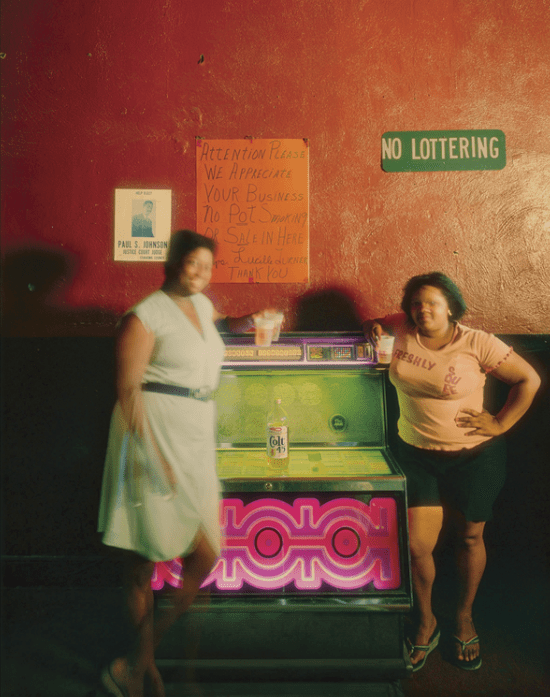
Music in the South
Drawn from the permanent collection, the paintings, prints, photographs, and sculptures that make up Music in the South celebrate the culturally diverse, richly expressive traditions of the music of the South. Music and the visual arts have both been shaped by the traditions, values, and attitudes of Southerners, especially in the realms of religion, community life, family relationships, and identity.…
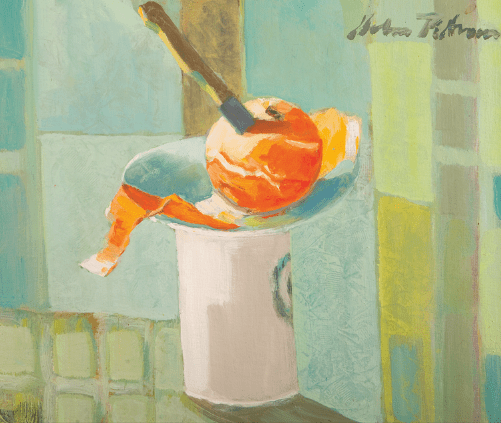
Acquired and Restored
This exhibition highlights key acquisitions and important conservation projects of the past year. More than two hundred works of art entered the collection in 2021, and a dozen more were conserved. The acquisitions include twenty-nine paintings by pioneering abstractionist Berry Fleming, thanks to Truist; numerous works by Savannah’s Christopher A. D. Murphy, a gift from his descendants; and the first…
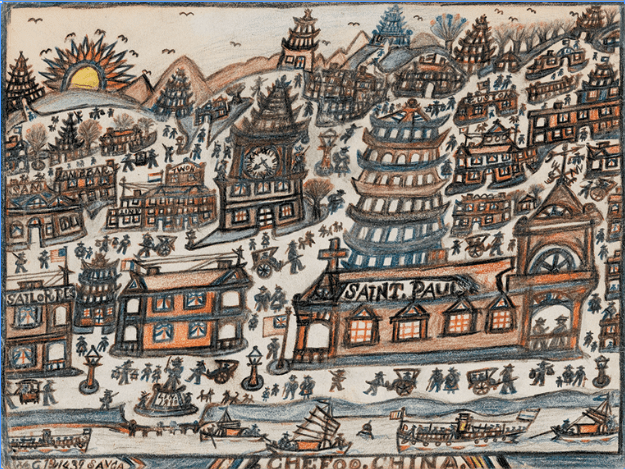
The Art of William Golding: Hard Knocks, Hardships, and Lots of Experience
Organized by Harry DeLorme, the senior curator of Savannah’s Telfair Museums, the exhibition is the first large-scale museum survey ever undertaken of the work of William O. Golding (1874–1943), an African American seaman and late-life artist who recorded a half-century of maritime experience in vibrant, imaginative drawings. After a lifetime spent traveling the world as a merchant seaman, Golding, his…

The Spirit of Collage Paintings: Works by Arless Day
Arless Day grew up in a family of artists in Baton Rouge, Louisiana, where he was born in 1951. His father was a woodcarver and his brother a teaching artist in colleges and universities for more than thirty years. Both were influential. He developed a passion for making art at an early age and has pursued it for almost all…
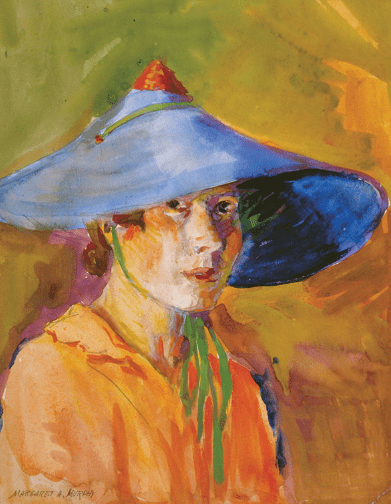
Savannah’s Women Artists, 1915–1945
Savannah, Georgia, was the site of the development of an unusually vibrant artistic community beginning around 1920. Much of the activity there was related to the Telfair Academy of Arts and Sciences, but it was also influenced by such organizations as the Savannah Art Association, the Southern States Art League, and the Association of Georgia Artists. Working in concert with the Telfair, they…
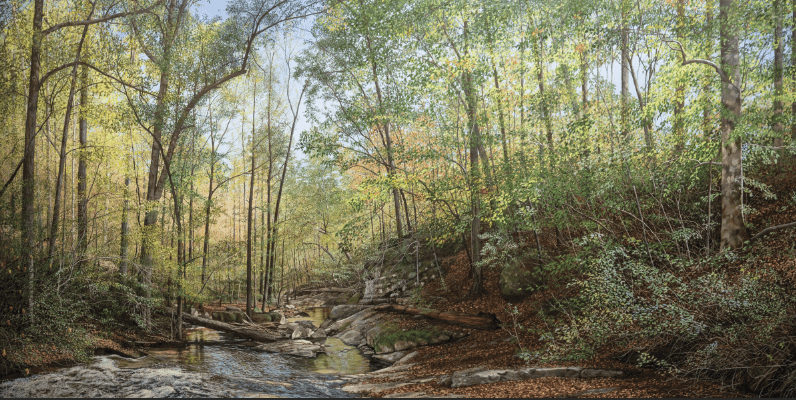
The View From Here: Three Master Painters Consider the Landscape: Recent Work by John Cleaveland, Julyan Davis, and Philip Juras
Highlighting the work of three consummately skilled contemporary artists, this exhibition addresses the distinctly different ways that each of them views the subject of landscape. They have this in common with landscape painters of the past: underlying their work are themes related as much to self-discovery and self-exploration as they are to the examination of topography. John L. Cleaveland, Jr.,…
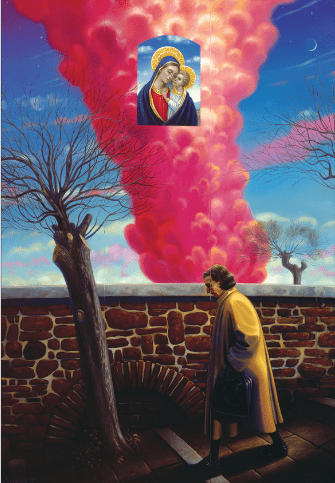
Terry Rowlett
Born and raised in Arkansas, Rowlett earned his master of fine arts degree in painting and drawing from the University of Georgia in 1995 and remained in Athens until 2003, when he embarked on a four-year sojourn, living, painting, pondering, and teaching in Nova Scotia, Brooklyn, the Hudson River Valley, Nashville, and Cortona, Italy. He returned to Athens in 2007…
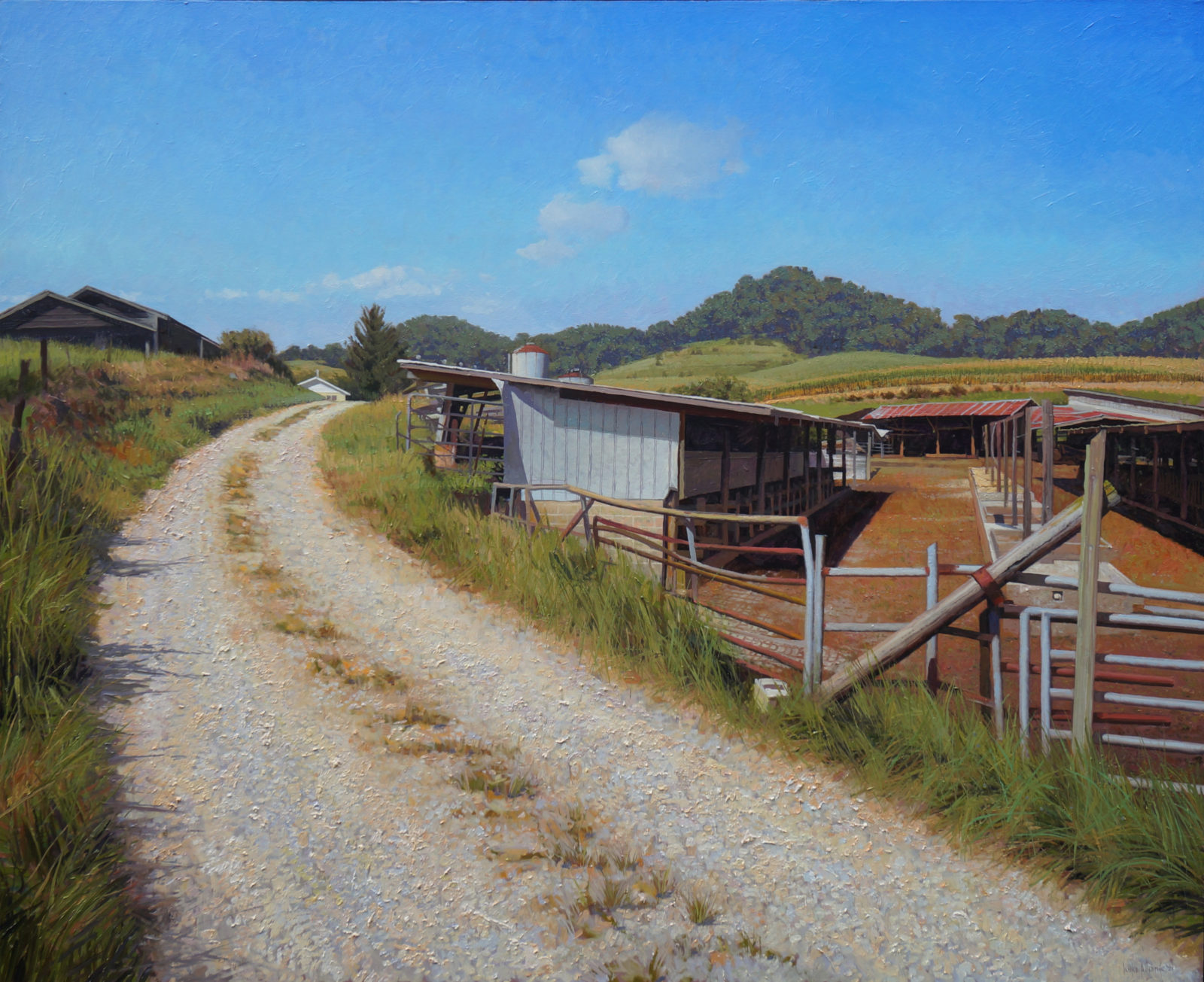
Immersed in the Seasons: Paintings by Luke Allsbrook
Born in Chapel Hill, North Carolina, and raised in Augusta, Georgia, where he had his first experience of making art under the tutelage of painter Edward Rice, Luke Allsbrook earned a bachelor of fine arts degree in painting from Indiana University Bloomington and a master of fine arts degree (cum laude) from the New York Academy of Art. His work…
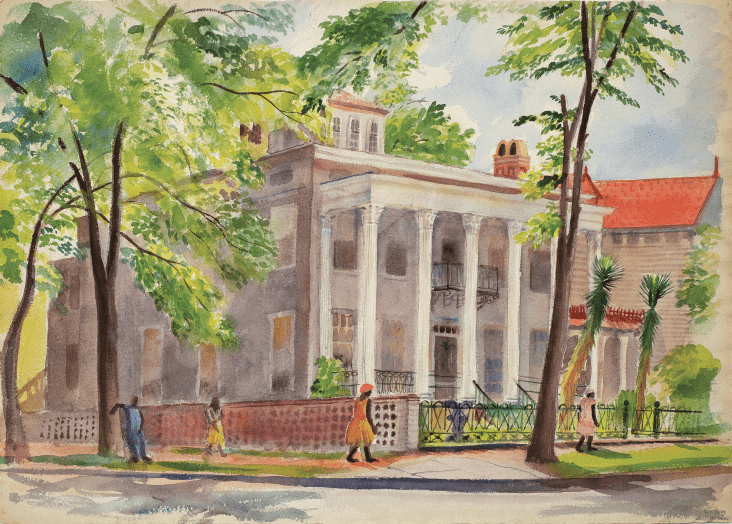
Horace Talmage Day: Views of Augusta, 1937–1941
The eldest of four children born in Amoy (now known as Xiamen), China, to American missionary parents, Horace Talmage Day (1909–1984) came to maturity as an artist during the 1930s. Although he traveled widely and continued to explore new subjects throughout his life, he is particularly well known for his depictions of Augusta, its environs, and the countryside throughout Georgia and…
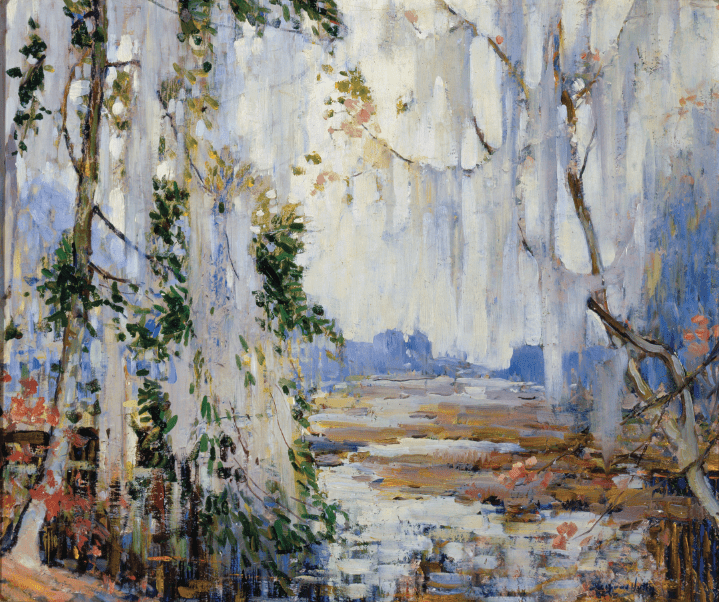
Alfred Hutty: Painter, Printmaker, Preservationist
One of the principal artists of the Charleston Renaissance, Alfred Heber Hutty (1877–1954) was a native of Grand Haven, Michigan. He spent most of his youth in Kansas City, where his innate artistic abilities led to a scholarship at the then-new Kansas City School of Fine Arts when he was only fifteen. Later, he was employed as a glazier and…
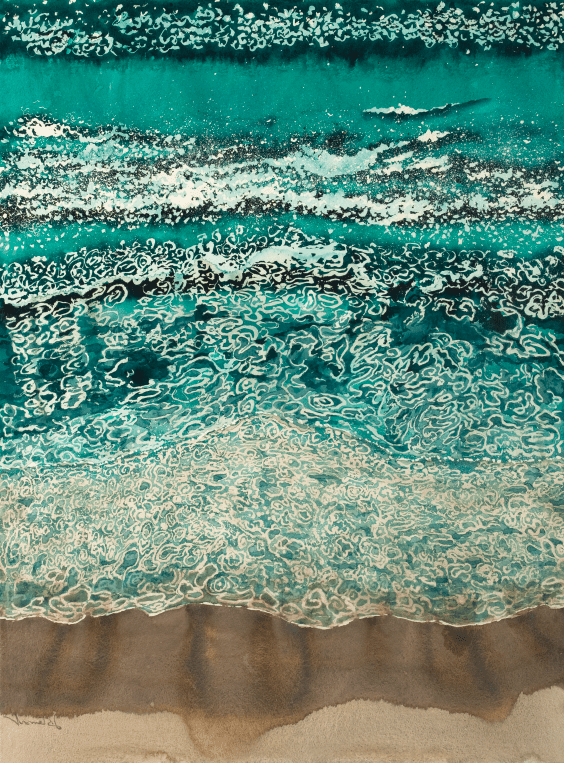
Jack Stewart: Artist, Teacher, and Administrator
Atlanta-born Jack Stewart (1926–2005) began private art lessons when he was seven. By age nine, he was taking classes at the High Museum School of Art, and by the time he was in his teens he was apprenticed to the sculptor and painter Steffen Thomas. He served as an infantryman during World War II and saw combat in the Battle of the Bulge. After the…
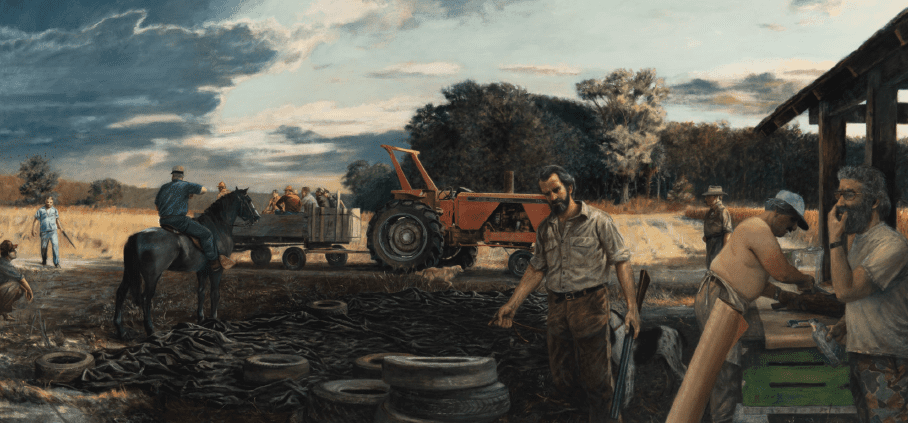
Manning Williams: Jack Island Trials
In the 1970s and 1980s, the paintings of Manning Williams depicted Charleston city scenes, suburban landscapes, roadways, friends, and family. As David Houston writes in Manning Williams: Reinventing Narrative Painting, that “body of work . . . may be understood as narratives of a larger community in the context of place and time” (page x). Among these paintings is one…
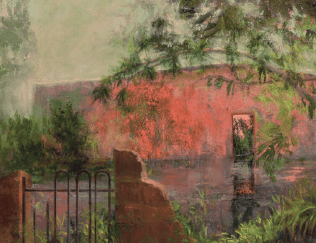
Linda Fantuzzo: Penumbra
Charleston, South Carolina, artist Linda Fantuzzo began painting at age twelve. She studied painting and graphics at the Pennsylvania Academy of the Fine Arts in Philadelphia from 1968 to 1973 before moving to Charleston, where she set up a studio in 1974. She was influenced to do so by fellow graduate student Manning Williams, a native Charlestonian who was already…
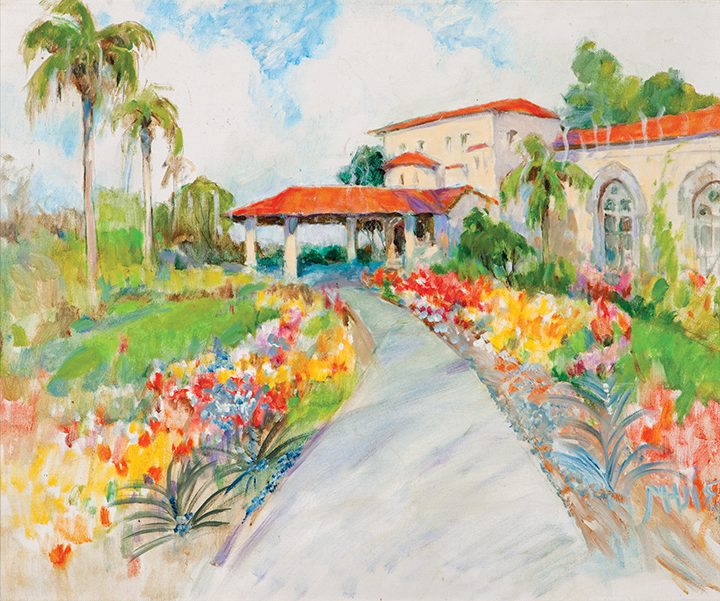
Mildred Weigle Nix Huie
A native of Augusta, artist Mildred Nix Huie (1906–2000) had an affinity for art, history, and literature her entire life. (Her maternal grandfather was John Michael Weigle, a managing editor of the Augusta Chronicle, and she lived next door to Johnny Mercer in Savannah, Georgia.) Huie attended Shorter College (now University) in Rome, Georgia, and graduated from Florida State College…
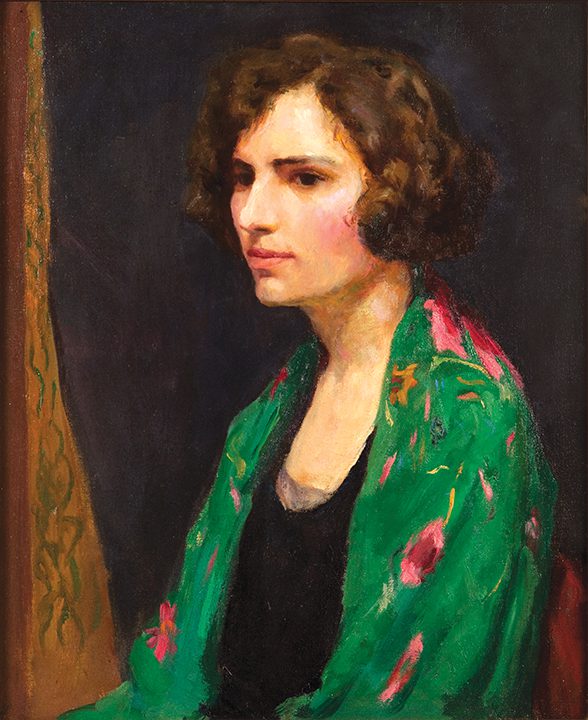
The Murphys of Savannah
Over the years, Savannah, Georgia, has enjoyed a reputation as an unusually vibrant center for the visual arts, a reputation that has resulted from a large and active community of artists. Christopher P. H. Murphy, his wife Lucile Desbouillons Murphy, and two of their seven children, Christopher A. D. Murphy and his sister Margaret, were central figures in the cultural…
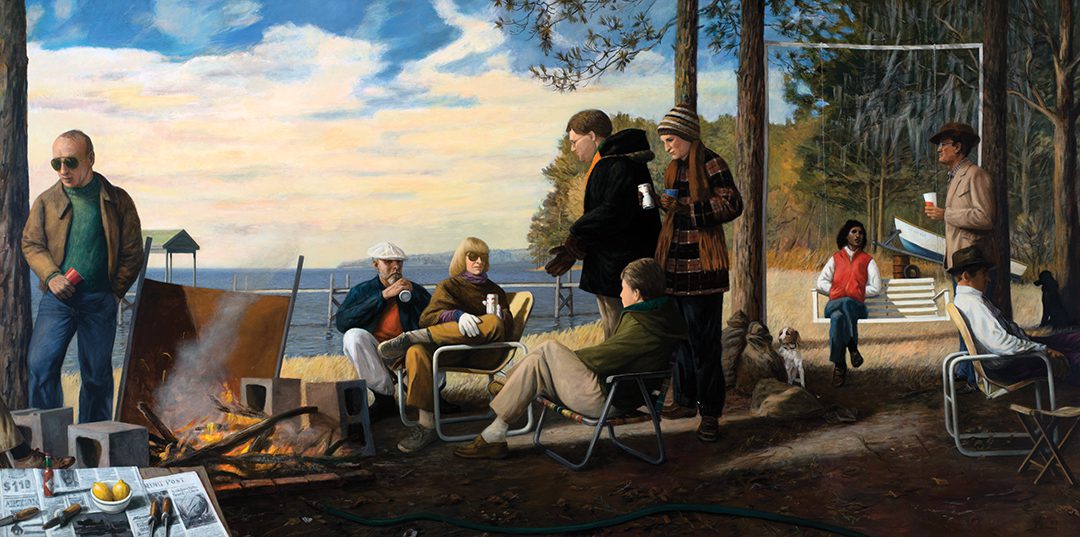
Manning Williams: Reinventing Narrative Painting
Reinventing Narrative Painting, the first major exhibition devoted to revered South Carolina artist Manning Williams since his death in 2012, was organized by the Gibbes Museum of Art in Charleston, South Carolina, an institution with which he enjoyed a close relationship from 1967 until the end of his life. The exhibition and the publication that accompanies it represent virtually every aspect of his long, remarkably prolific career. Williams (1939–2012), a…
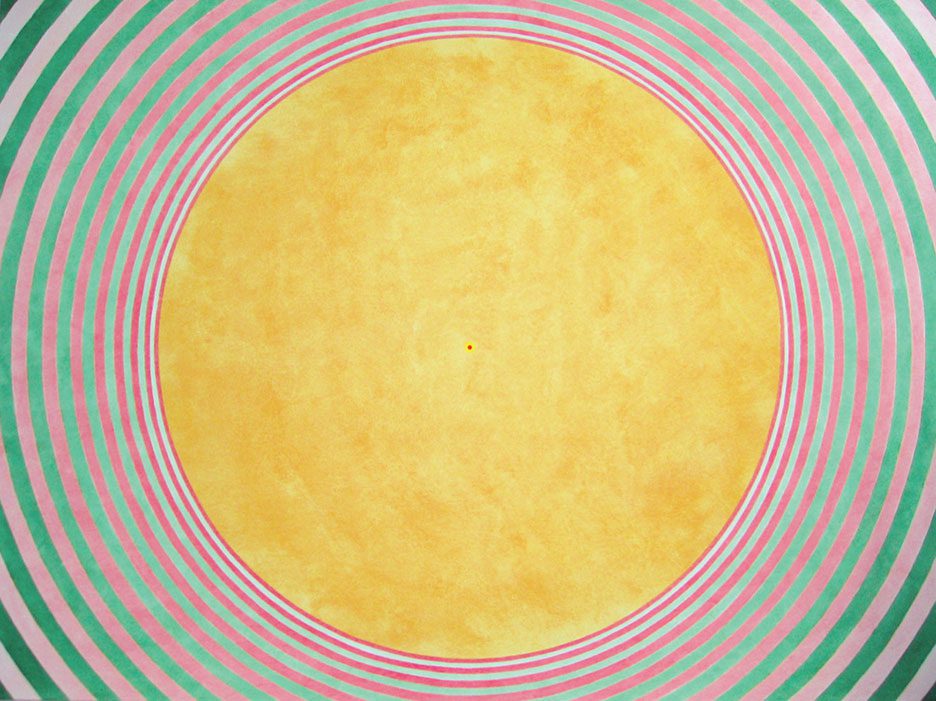
Don Cooper
Don Cooper, born in Texas, grew up in Georgia and has lived primarily in Atlanta since 1977. He received his master of fine arts degree from the University of Georgia and is the recipient of a Fulbright artist fellowship and a Working Artist Project Grant from the Museum of Contemporary Art of Georgia (MOCA GA). His work has been the…
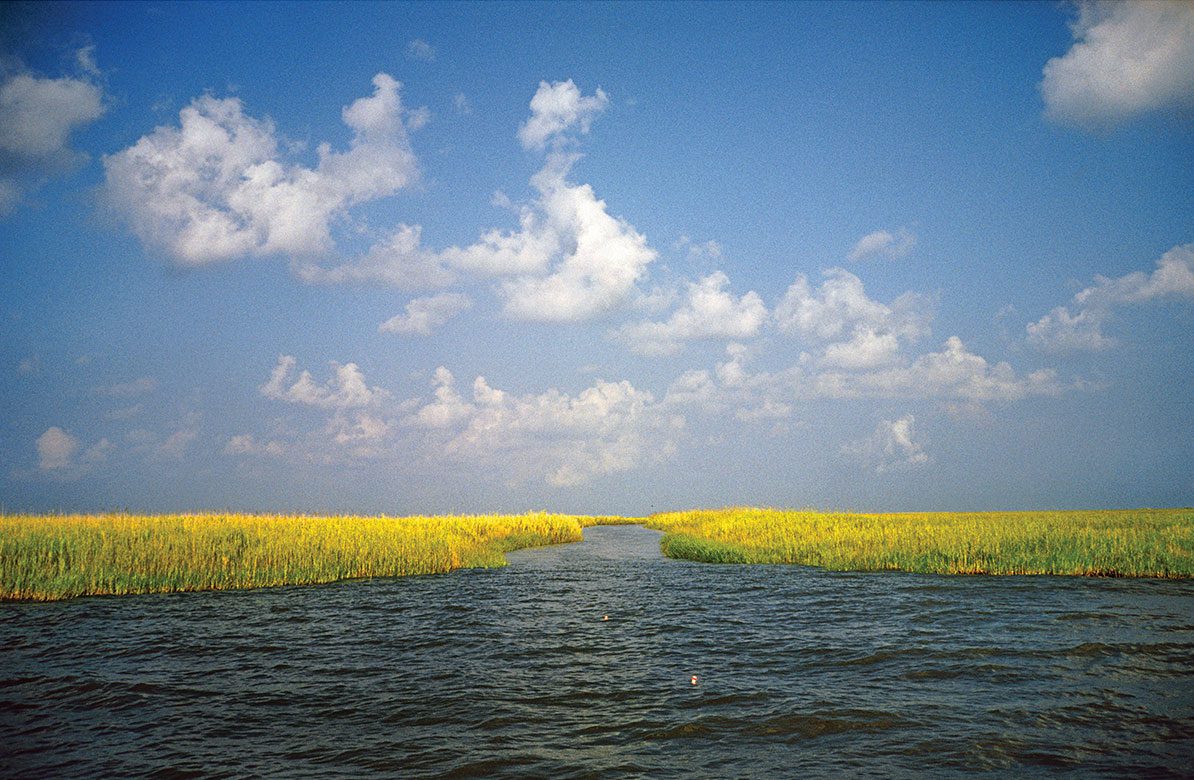
Local Color: Photography in the South
Local Color: Photography in the South brings to public view some of the best photographs from the Morris Museum of Art’s permanent collection. This selection underscores the rich range of aesthetic possibility within a medium that has often been thought the purview of amateur photographers, while demonstrating the depth and range of the museum’s holdings. These photographs explore and celebrate the region…
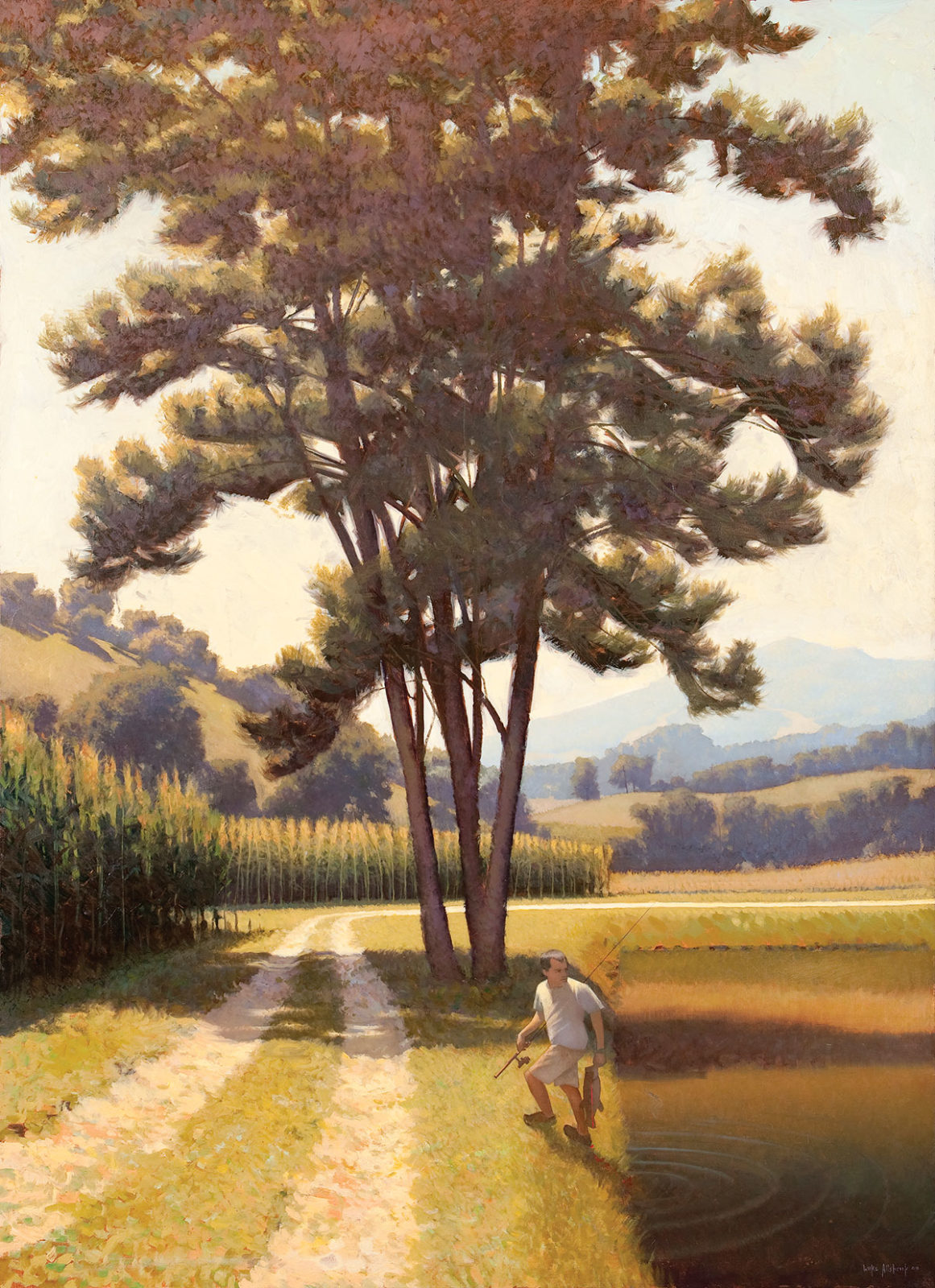
Recent Acquisitions
The consensus of opinion holds that 2020 was not a great year for anyone or anything. A noteworthy exception may be the permanent collection of the Morris Museum of Art. The current exhibition of highlights from this year’s more than two hundred acquisitions, on display in the museum’s Coggins Gallery, is a celebration—of the art of the South and the artists who…
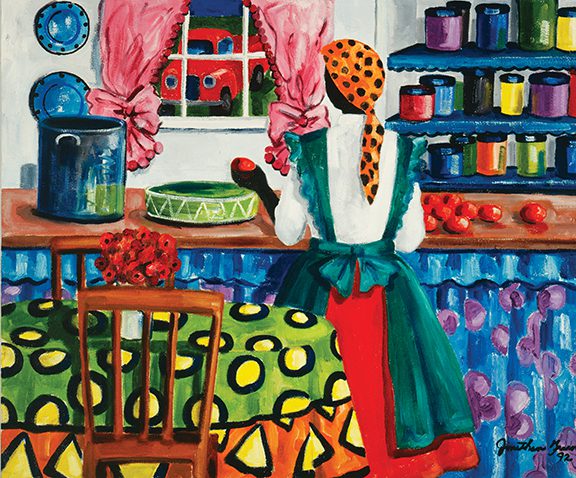
Jonathan Green: Selections from the Permanent Collection
Born and raised in the South Carolina low country, Jonathan Green graduated from the School of the Art Institute of Chicago in 1982 and has sustained a very successful career ever since. His paintings can be found in major museum, corporate, and private collections around the world. He is represented in the Morris Museum’s permanent collection by nearly forty works…
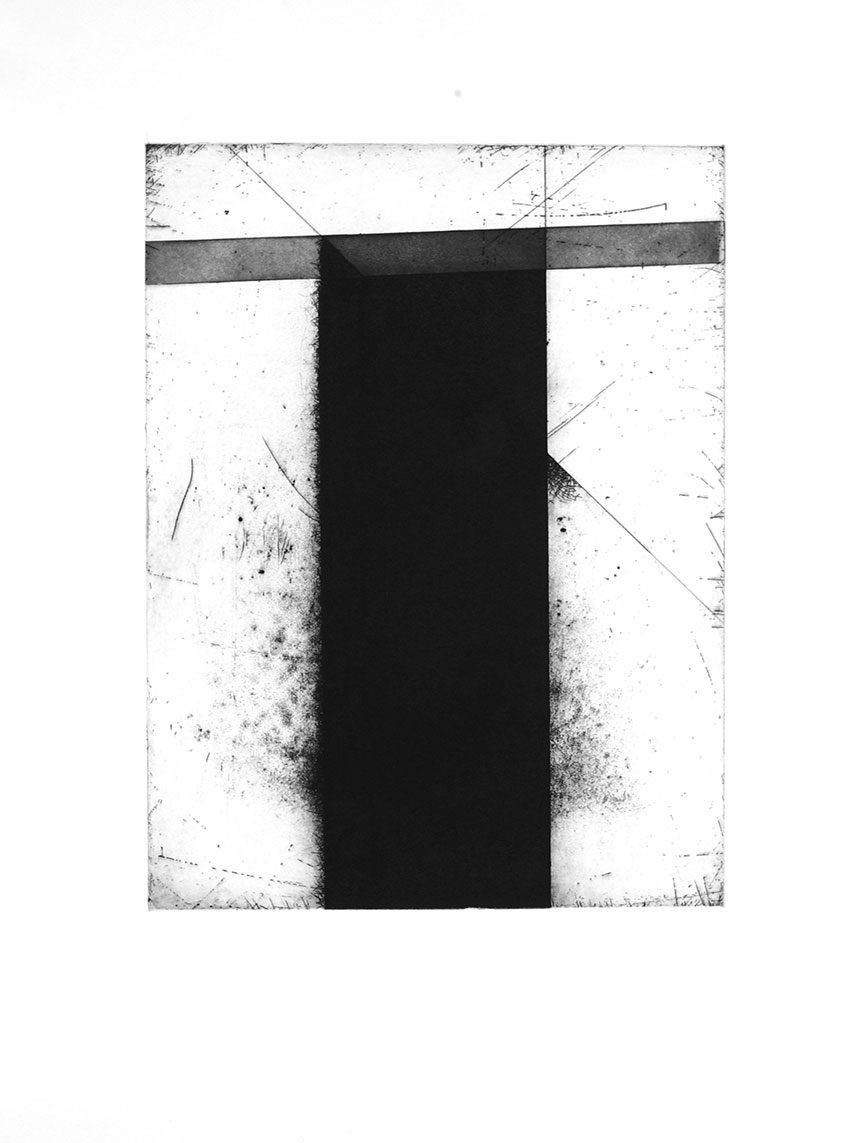
The Perfect Ditch Series: Prints by Jackson A. Cheatham
Jackson Cheatham was born in Columbia, Tennessee, in 1945. After serving in the United States Navy, he attended the Atlanta College of Art (ACA, now the Atlanta campus of the Savannah College of Art and Design), where he studied with Keith Rasmussen and Norman Wagner. He earned a bachelor of fine arts degree at ACA and a master of fine arts…
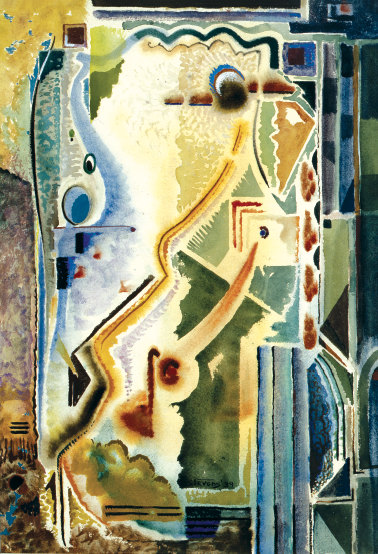
Will Henry Stevens
An American original, Will Henry Stevens (1881–1949) was a modernist painter and naturalist who was as inspired by the writings of Ralph Waldo Emerson, Henry David Thoreau, and Walt Whitman as he was by the work of the American painters John Henry Twachtman and James Abbott McNeill Whistler and the Chinese painters of the Song dynasty. Stevens was a…
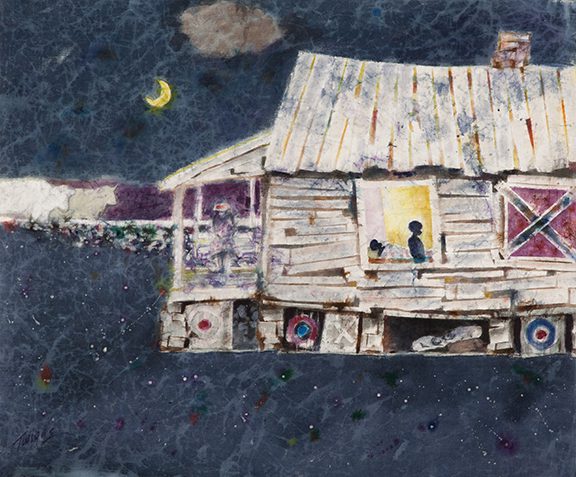
Messages from Home: The Art of Leo Twiggs
Now eighty-six, Dr. Leo Twiggs, regarded for many years as one of South Carolina’s most important artists, is a native of Saint Stephen, a small town north of Charleston. The first member of his family to attend college, he matriculated at Claflin University in Orangeburg, South Carolina, where he majored in art, English, and history. After earning his undergraduate degree…
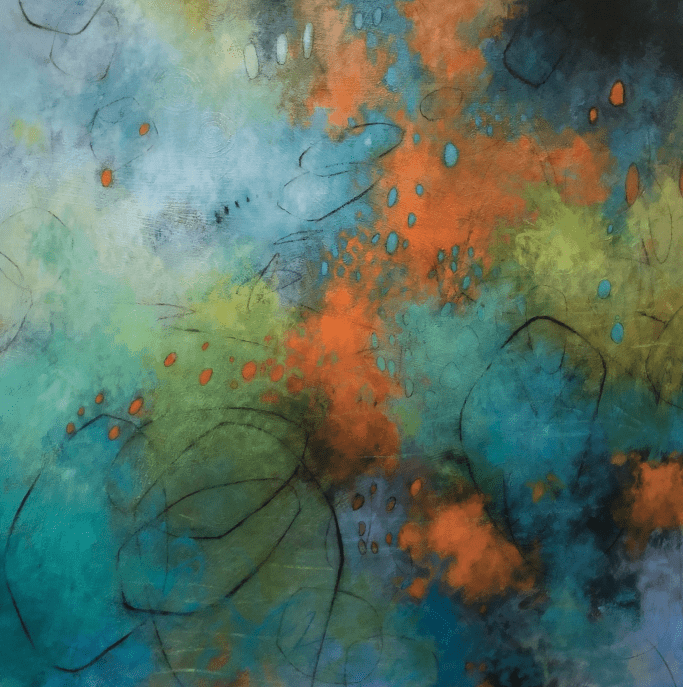
Water Works: Recent Paintings by Lillie Morris
Lillie Morris, a native of Augusta, is well known for her acrylic paintings, collages, and mixed-media works. She specializes in abstract art that reveals a love of texture and color and an instinct for experimentation. Her work is richly layered, and she employs a vocabulary of gestural marks and linear elements that is uniquely hers in an attempt to convey…
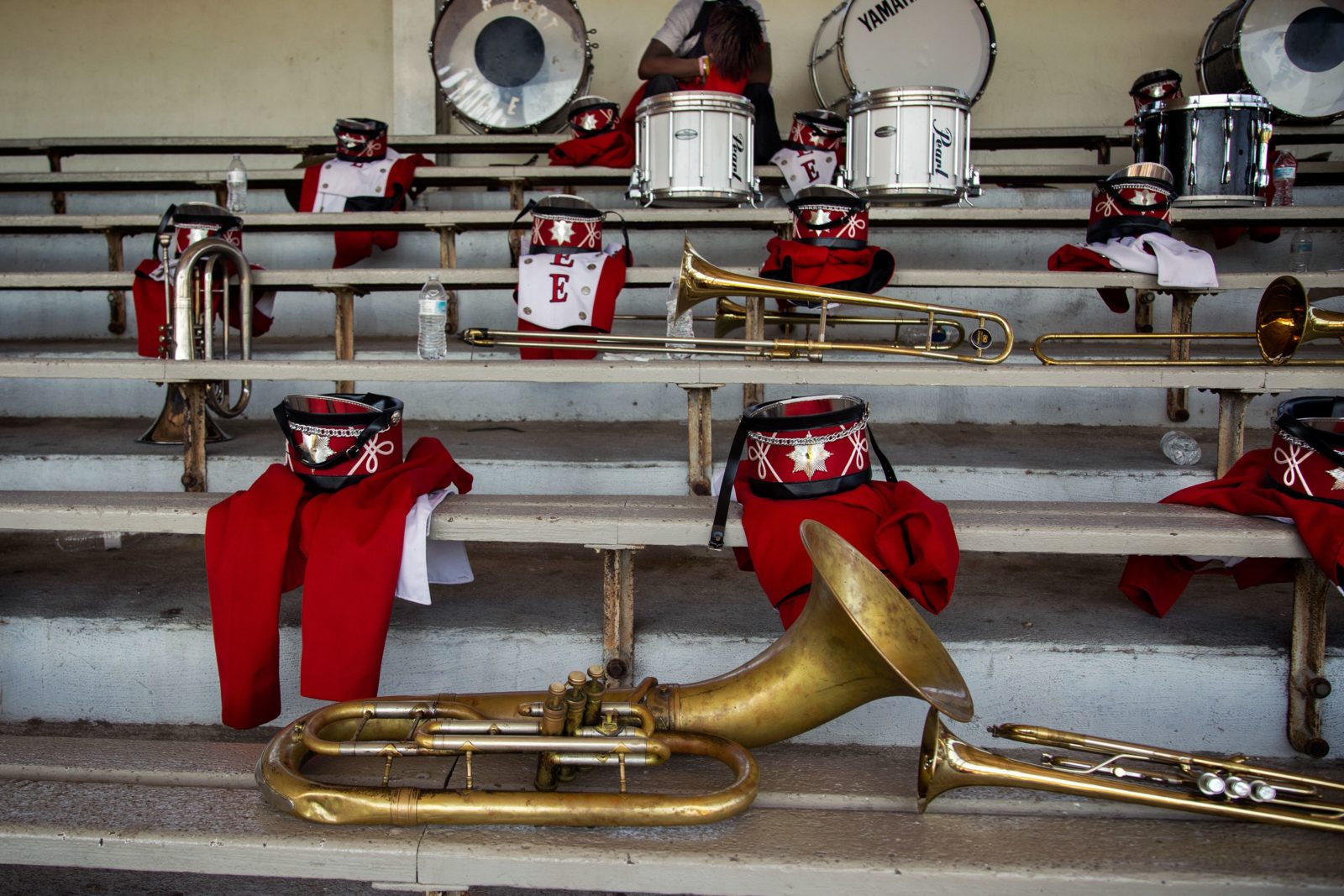
Music in the South
Music in the South celebrates the culturally diverse and richly expressive traditions of this region’s musical arts in an exhibition of more than 35 works of art—paintings, drawings, prints, and photographs. The exhibition is mainly drawn from the Morris Museum’s permanent collection, supplemented by selected loans of musical instruments from the McKissick Museum in Columbia, South Carolina. Organized by consulting curator Jay…
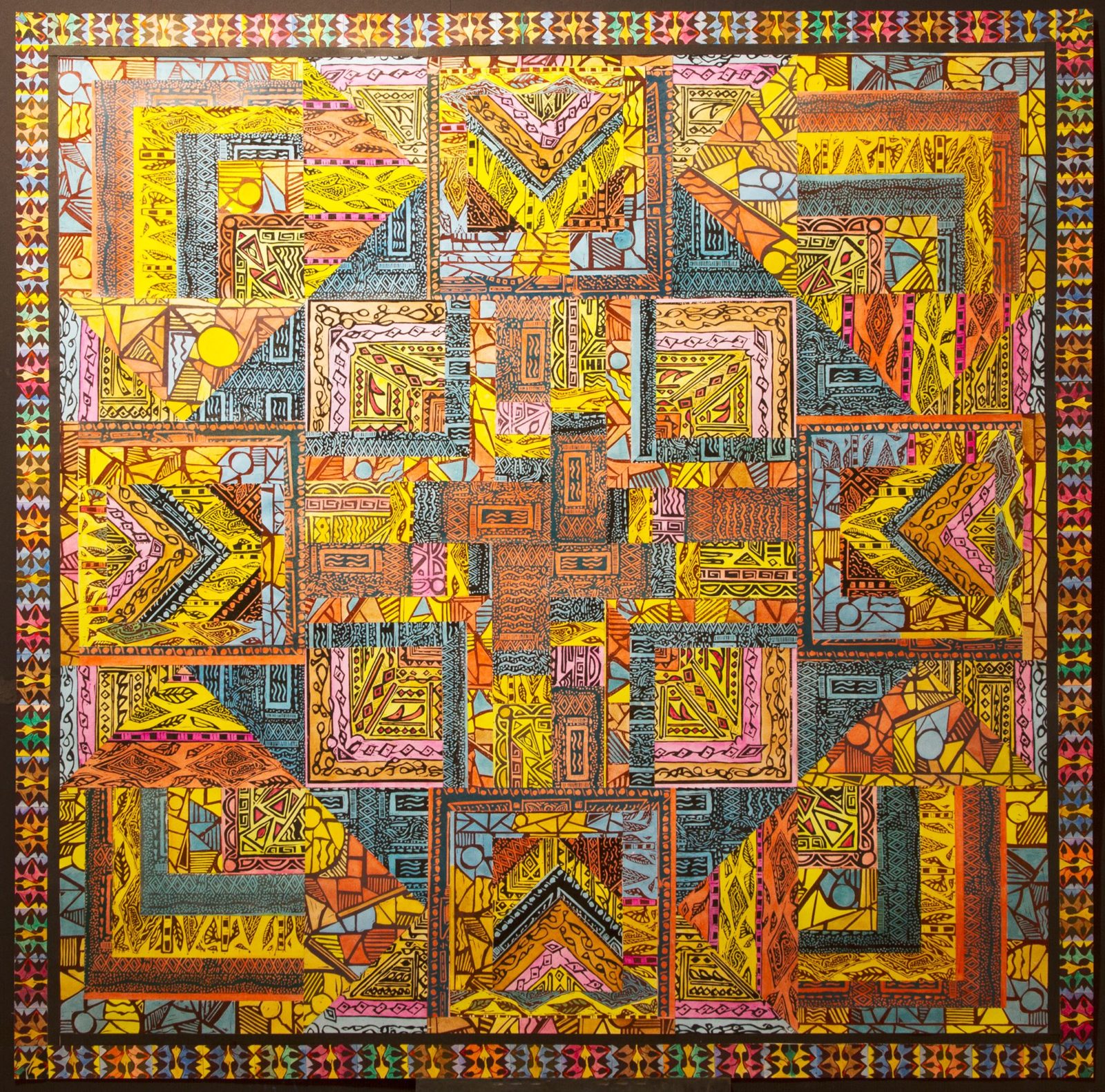
From Brayer to Brush: Hand-Colored Prints by Jim Sherraden
Since 1977, artist Jim Sherraden has resided in Tennessee, where he managed Nashville’s Hatch Show Print from 1984 until 2017. He oversaw its transition from a cultural survivor of the mid-twentieth century to its current status as a widely recognized graphic design house and destination for letterpress enthusiasts. At Hatch, his clients included Emmylou Harris, B. B. King, Neil Young,…
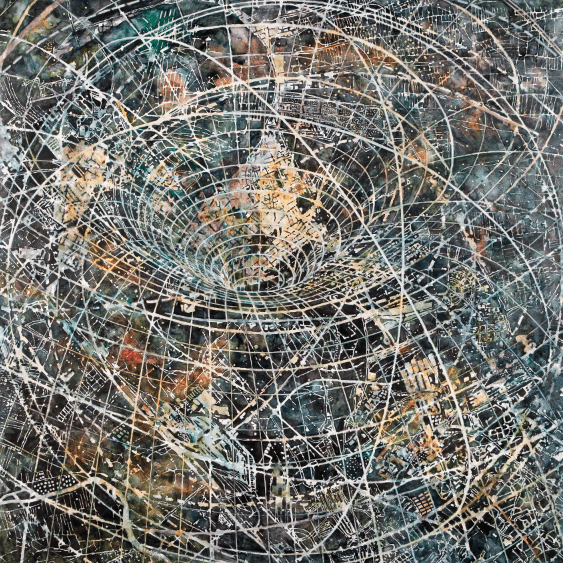
Vast Scale—Intimate Space: Paintings by Cheryl Goldsleger
Vast Scale—Intimate Space: Paintings by Cheryl Goldsleger is a small exhibition—just five paintings—that represents and shares big ideas about time and space and our place in each. It is a valedictory celebration of Goldsleger’s wonderfully successful term as the William S. Morris Eminent Scholar in Art at Augusta University. Goldsleger’s work has been exhibited nationally and internationally. The work in the present exhibition was…
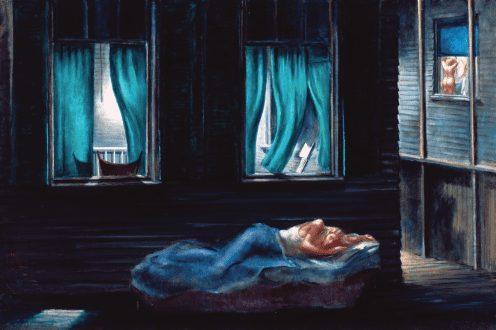
Modernism in the South
Since 1900 much of American painting and sculpture has been represented by a series of revolts against tradition, especially academic tradition. At the dawn of the twentieth century, realism became the new direction for American artists. Later those realists gave way to modernists, many of them arriving from Europe. The impact of the 1913 Armory Show, where Americans saw Marcel…
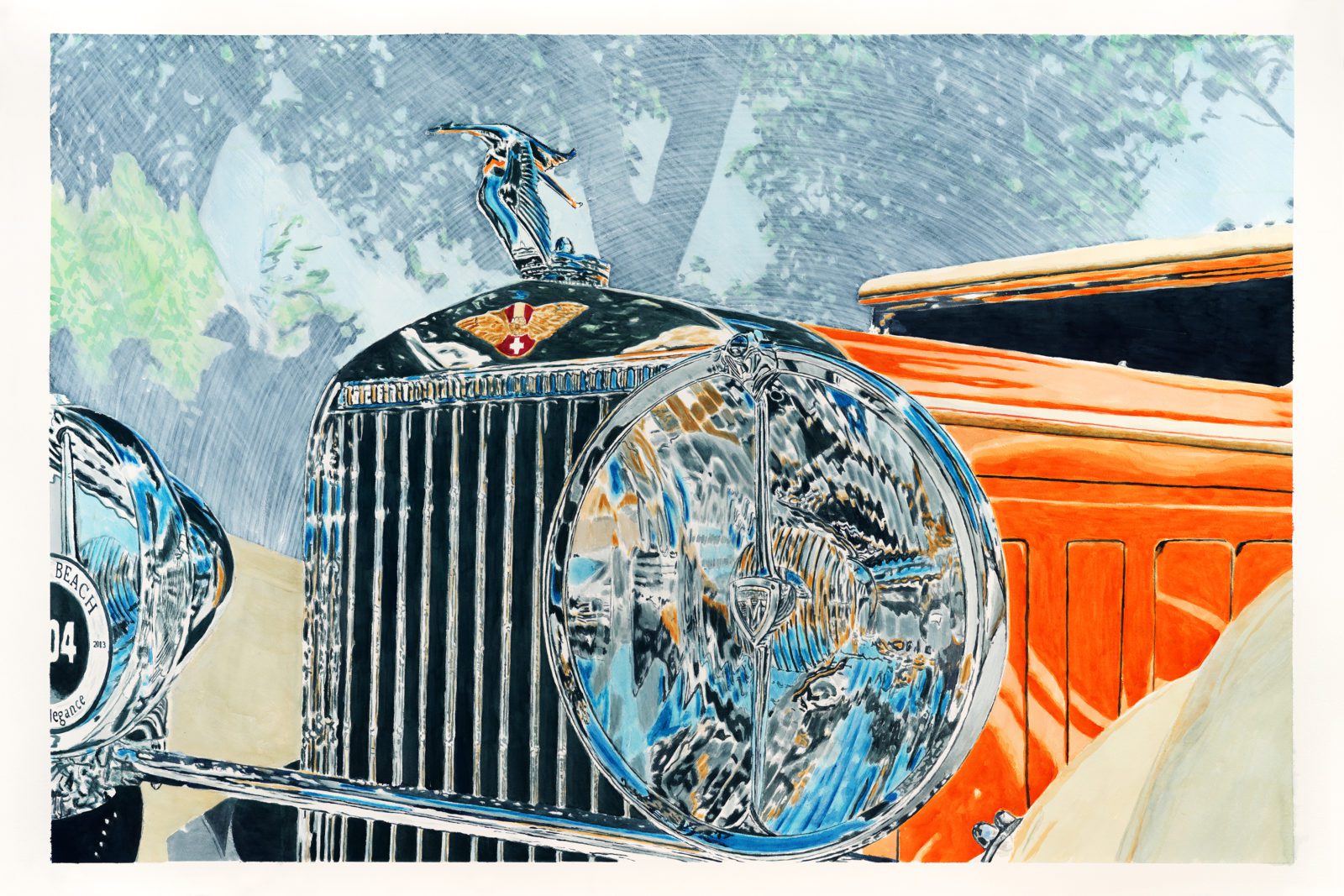
LUSTER: Realism and Hyperrealism in Contemporary Automobile and Motorcycle Painting
This bold exhibition includes more than fifty-five paintings by fourteen leading photorealist artists—A. D. Cook, Randy Ford, Allan Gorman, Marc G. Jones, Cheryl Kelley, Richard Lewis, Lory Lockwood, Bob Petillo, Kris Preslan, Joseph Santos, Ken Scaglia, John E. Schaeffer, Guenevere Schwien, and Harold Zabady—all of whom specialize in automobile and motorcycle imagery. Through their work, they share their enthusiasm for…
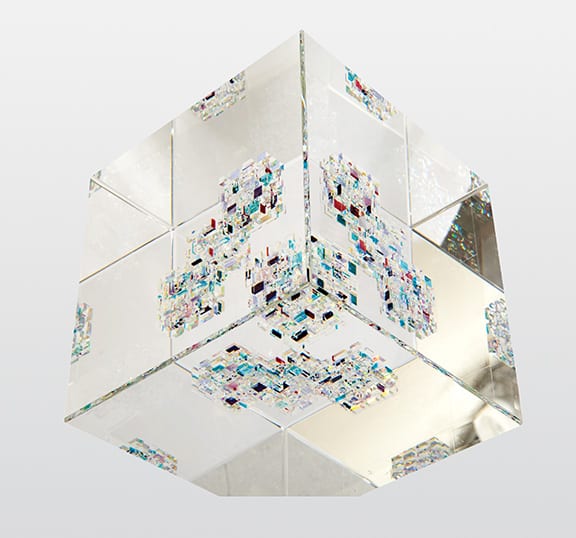
The Eugene Fleischer Collection of Studio Art Glass
The history of the studio art glass movement in America is relatively brief. Its origins can be pinpointed precisely to two workshops conducted by ceramist Harvey Littleton, who was interested in the potential of glass as an artistic medium, and chemist and engineer Dominick Labino held at the Toldeo Museum of Art in 1962. Littleton had envisioned a more or…
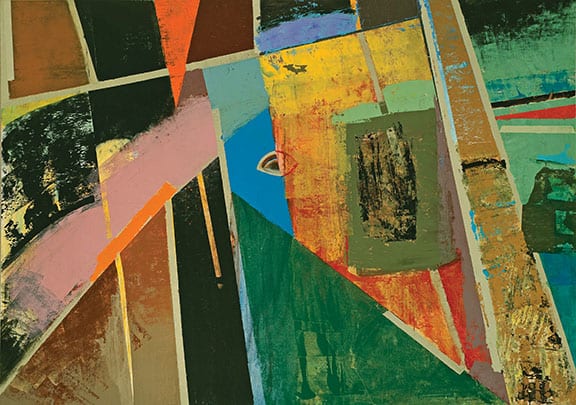
Vietnam Transformed: The Art of Richard J. Olsen
Born in Milwaukee, Wisconsin, in 1935, Richard J. Olsen began his journey in art in his youth. He attended the University of Wisconsin, where he earned a bachelor of science degree in 1958 and a master of fine arts degree (with a concentration in painting and printmaking) in 1966. He was a child during World War II and a teenager…
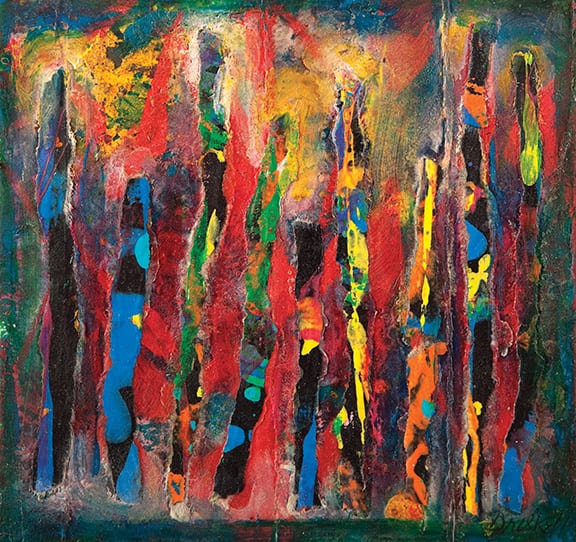
David Driskell: Artist and Scholar of the African American Experience
David Driskell, born in Eatonton, Georgia, in 1931, earned an undergraduate degree in art from Howard University in 1955. He earned a master of fine arts degree from the Catholic University of America in 1962 before undertaking further postgraduate study in art history. Trained as a painter, he works primarily in collage, mixed media, and printmaking. He began his teaching career at…
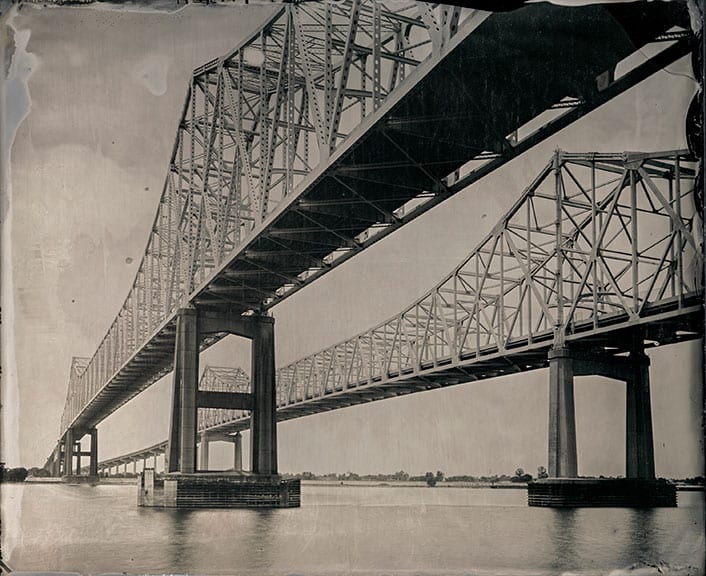
It Was There All Along: Artists’ Books and Tintypes by Frank Hamrick
A master of his medium, Frank Hamrick is an associate professor at Louisiana Tech University in Ruston. He earned a bachelor of fine arts degree from the University of Georgia and a master of fine arts degree from New Mexico State University. His work is represented in major public collections, including those of the Art Institute of Chicago and the…
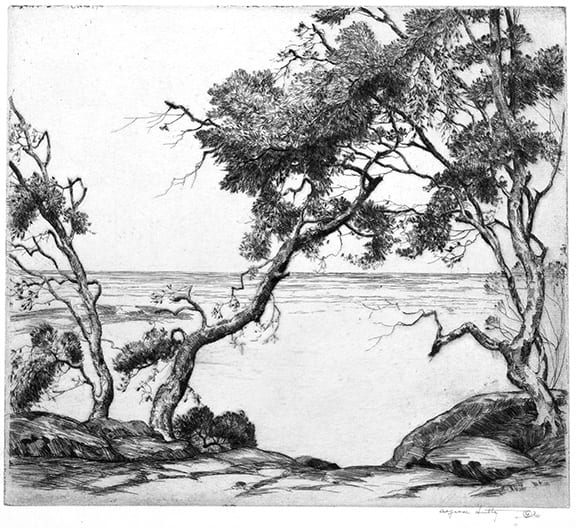
The Charleston Renaissance: Art, Architecture, Literature, and Music
If you have not had the opportunity to view The Charleston Renaissance, be sure to do so before it closes on Sunday, October 27. Organized by guest curator Jay Williams, the exhibition includes art from the Morris Museum’s permanent collection and special loans from the South Caroliniana Library of the University of South Carolina. It includes paintings, drawings, and etchings…
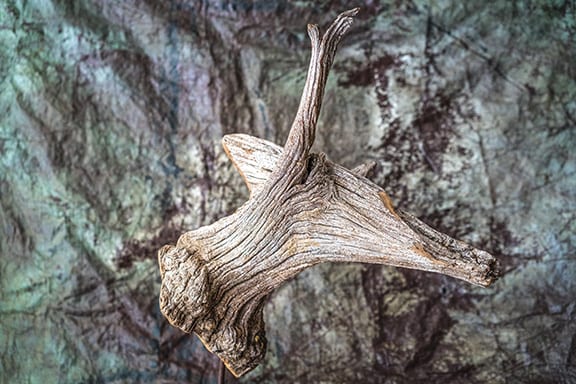
Gathered: Photographs by Lucinda Bunnen
One of the most respected photographers in the country, Lucinda Bunnen took up photography at the age of forty when she and her family traveled to Peru. There she discovered a love for the medium and the immediacy of its rewards, as well as a certain innate skill that she has honed ever since. As well as being a prolific…
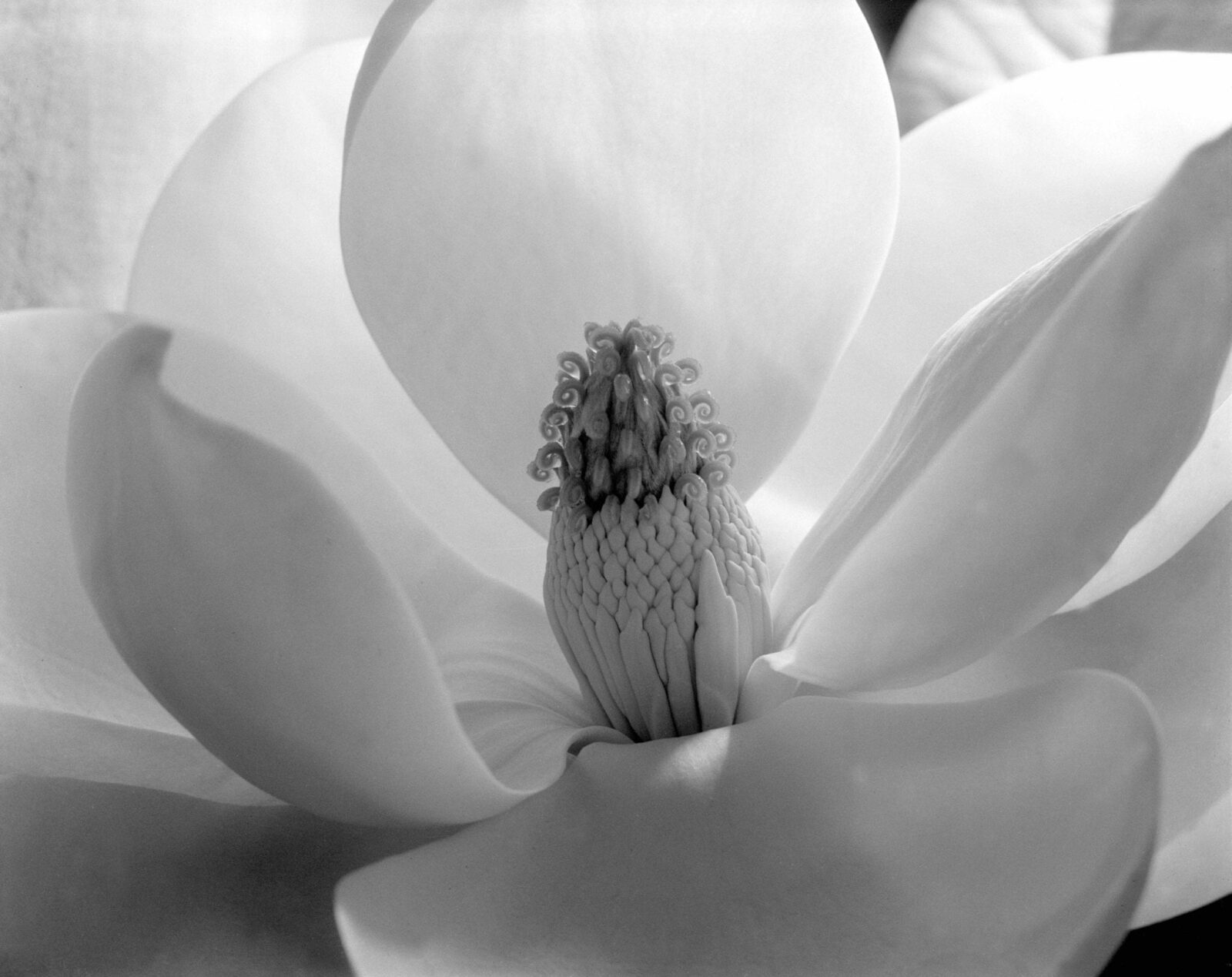
Modern Masters: Group ƒ/64
Photographs by Ansel Adams, Imogen Cunningham, Willard Van Dyke, Brett Weston, and Edward Weston Works from the Bank of America Collection April 27–July 21, 2019 Modern Masters: Group ƒ/64 features forty-four photographs by five of its legendary members—Ansel Adams, Imogen Cunningham, Willard Van Dyke, Brett Weston, and Edward Weston. Many of the f/64 photographers are now regarded as some of…
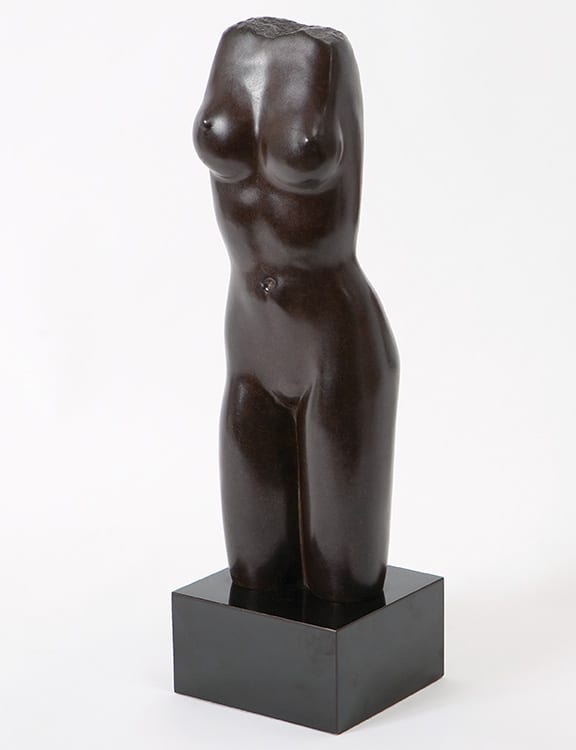
Morsberger + Huffington
Two Morris Museum favorites—Anita Huffington and Philip Morsberger—are featured in a joint exhibition showcasing Anita’s marvelous, tabletop-sized sculptures and Philip’s equally marvelous (and wholly new for him) oil pastel drawings. Huffington earned bachelor’s and master’s degrees from the City College of New York before embarking on a career as a sculptor that is now in its sixth decade. She…
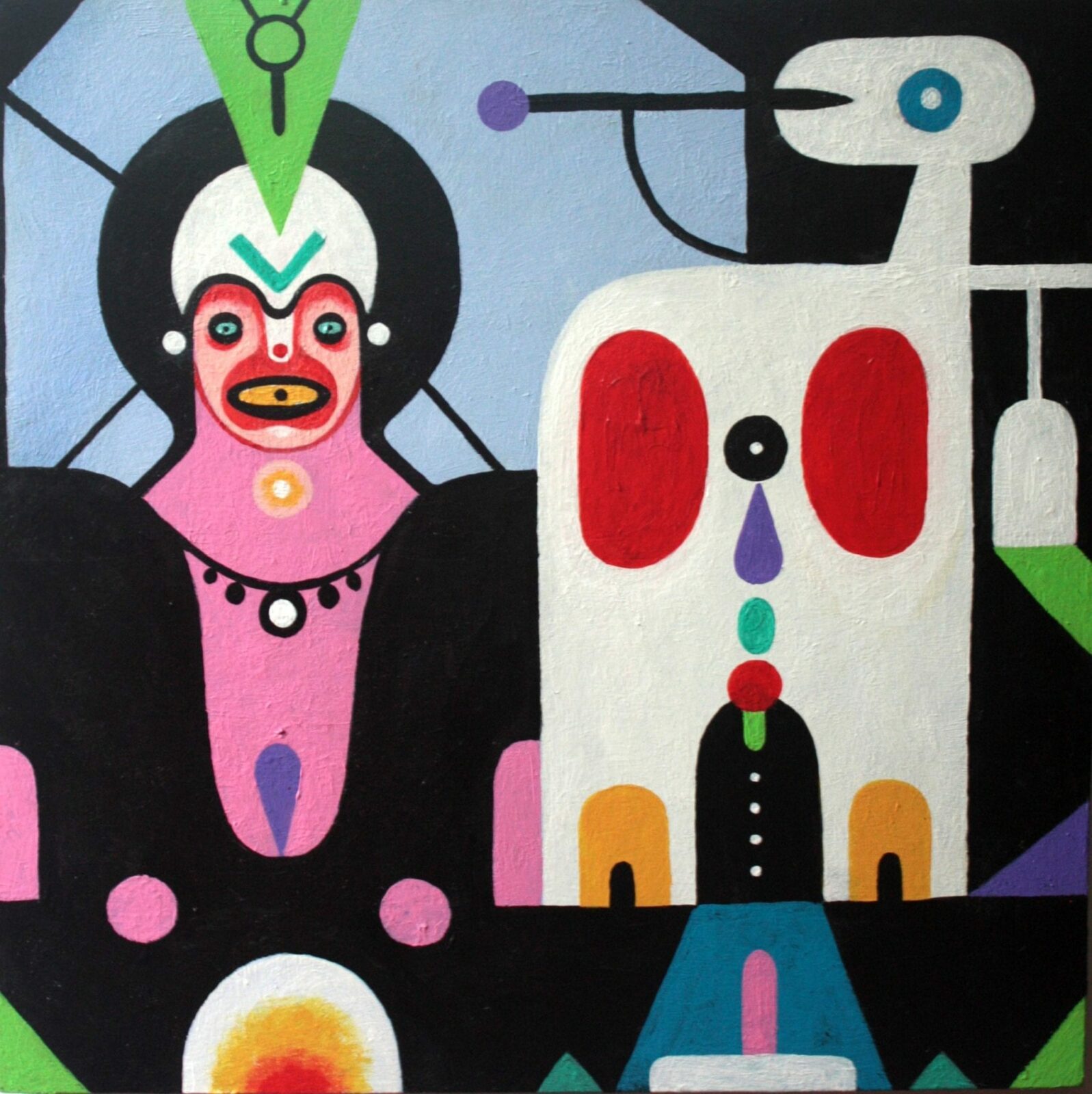
The Many Things That Fall in Between: Recent Work by Baker Overstreet
Baker Overstreet’s first solo show at the Morris Museum of Art features new paintings—in the artist’s words, “wildly colorful” works on panel, ranging from the very small to the very large. Predominantly abstract, they reference many things—“ghastly hybrid animals, seductresses, deviant clowns, and many things that fall in between.” These paintings represent a new direction for the artist: “to explore the…
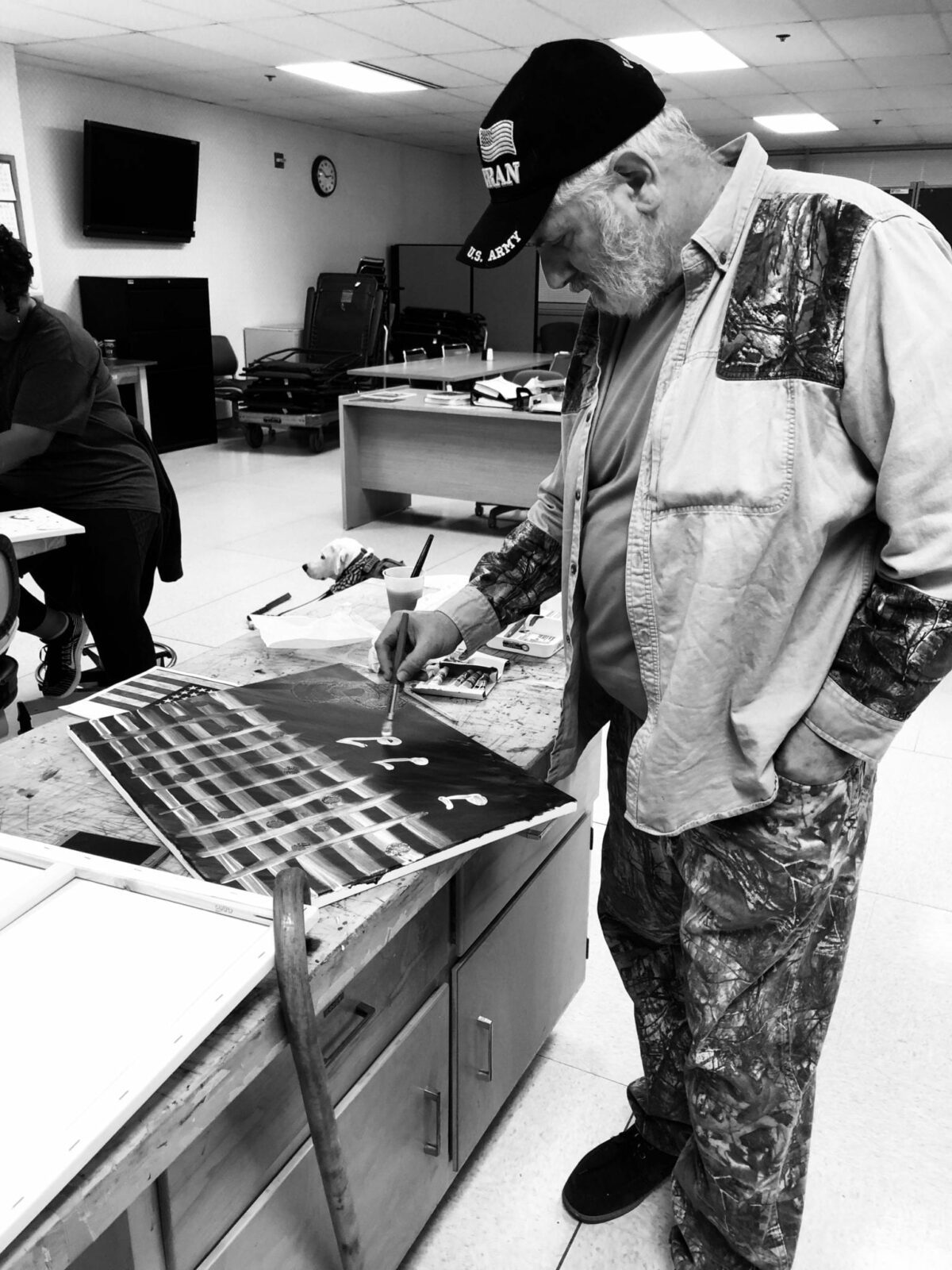
Veterans Explore Art with the Morris
The Morris presents Veterans Explore Art with the Morris in the 1st floor EDU Gallery. The exhibition features a variety of works created by 4 veterans who participated in the museum’s monthly Art Reach program at the Augusta VA Medical Center. Art Reach is a monthly program that engages those who seek outpatient treatment at the Augusta VA’s uptown facility. Veterans…
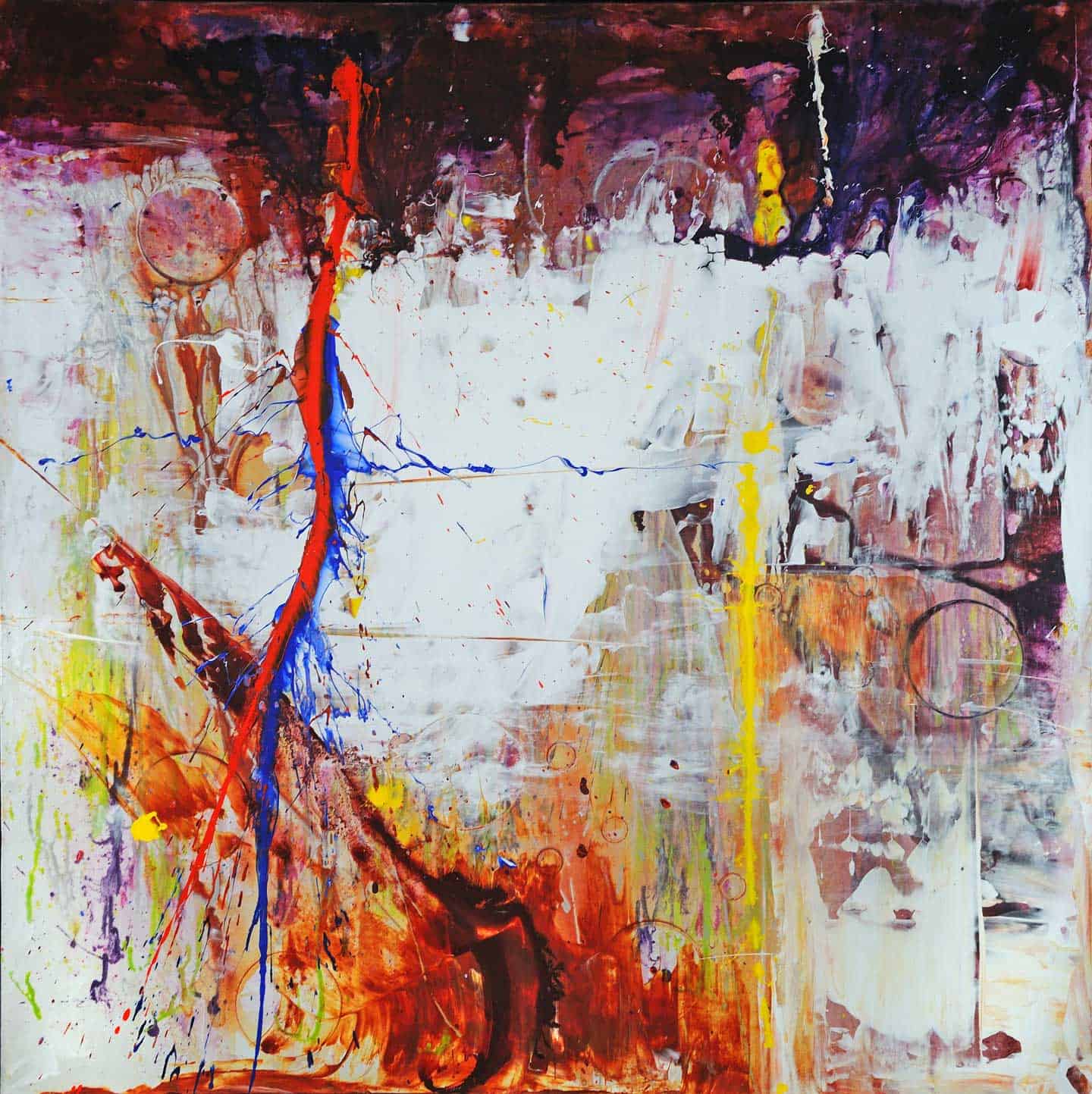
Recent Abstractions by Anne Marchand
Anne Marchand was born in New Orleans, Louisiana. She says that growing up in such a colorful environment, redolent with Spanish, French, and African influences, left a lasting impression on her color sensibility. She traveled widely throughout the South, which had a similarly profound effect on her developing visual vocabulary of form and color derived from nature. She earned a bachelor’s…
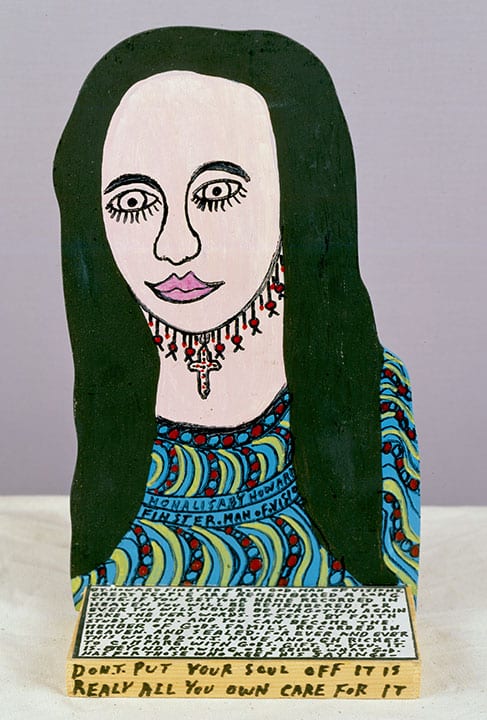
Folk Art in the South: Selections from the Permanent Collection
Folk art—often characterized as outsider, visionary, or self-taught—varies widely in medium and subject matter. The range of descriptive terms applied to it does little to describe the imaginative ways in which folk artists express deeply personal ideas in visual language. They employ readily accessible materials, including found objects, to produce their work, putting mundane materials to fresh and ingenious uses.…
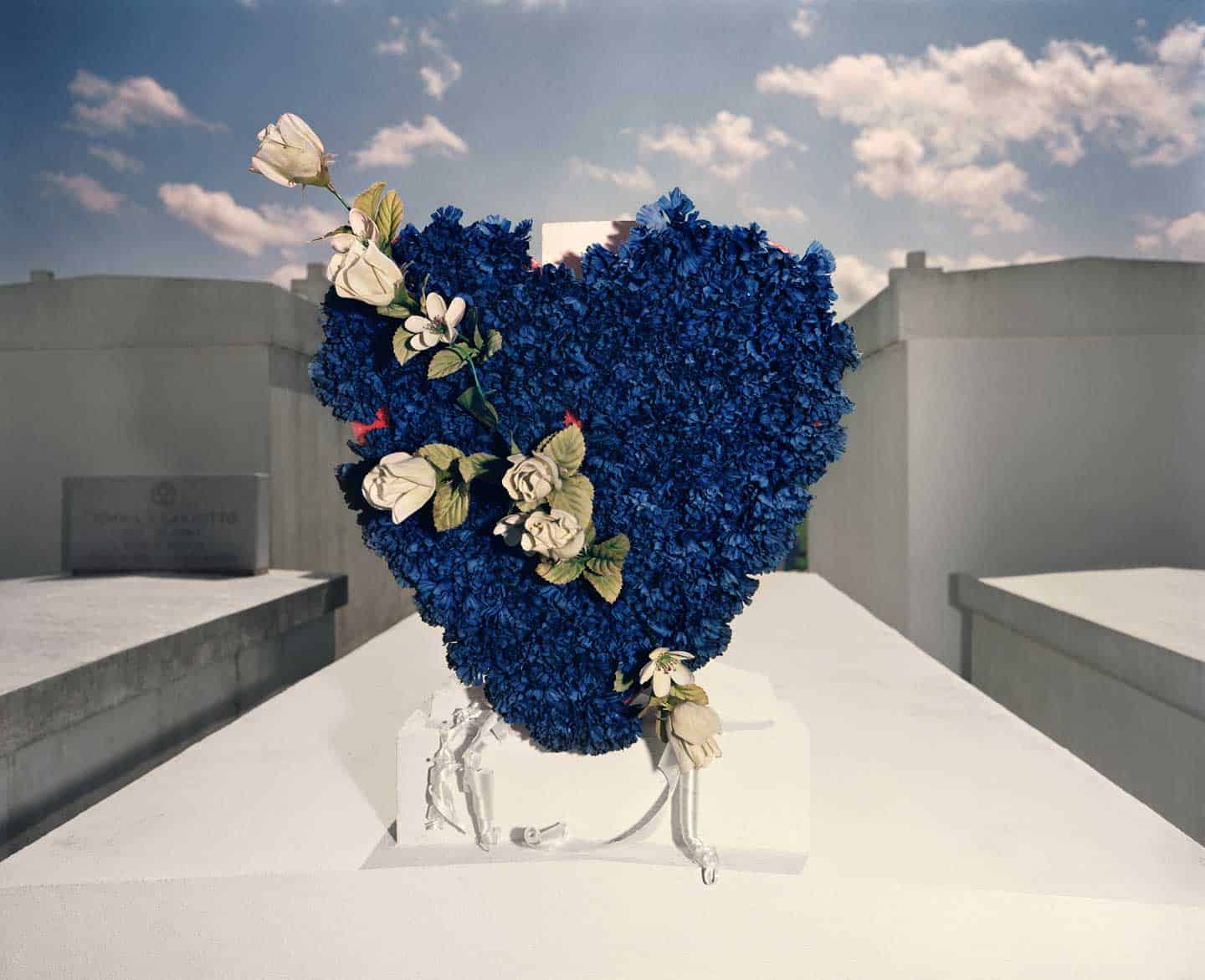
Local Color: Photography in the South
Local Color, an exhibition of more than forty works drawn from the Morris Museum’s permanent collection, explores the special role that color photography has played in the history of Southern photography since it was first popularized by William Christenberry and William Eggleston. In addition to those pioneers, the exhibition features work by John Baeder, William Greiner, Birney Imes, Jim McGuire, and Meryl Truett, to…
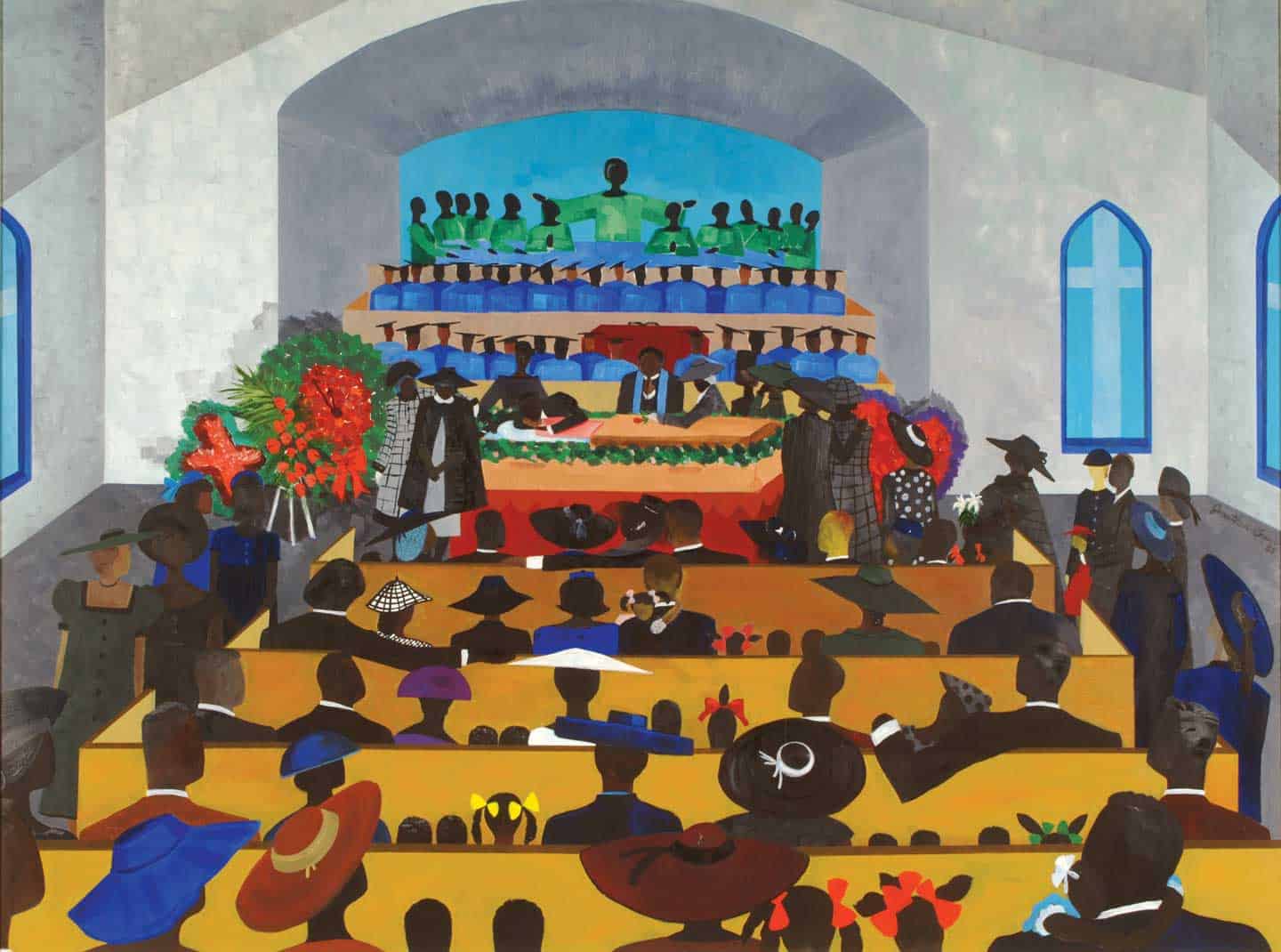
Jonathan Green: Selections from the Permanent Collection
Born and raised in the South Carolina low country, Jonathan Green graduated from the School of the Art Institute of Chicago in 1982 and has sustained a very successful career ever since. His paintings can be found in major museum, corporate, and private collections around the world. He is represented in the Morris Museum’s permanent collection by nearly forty works…
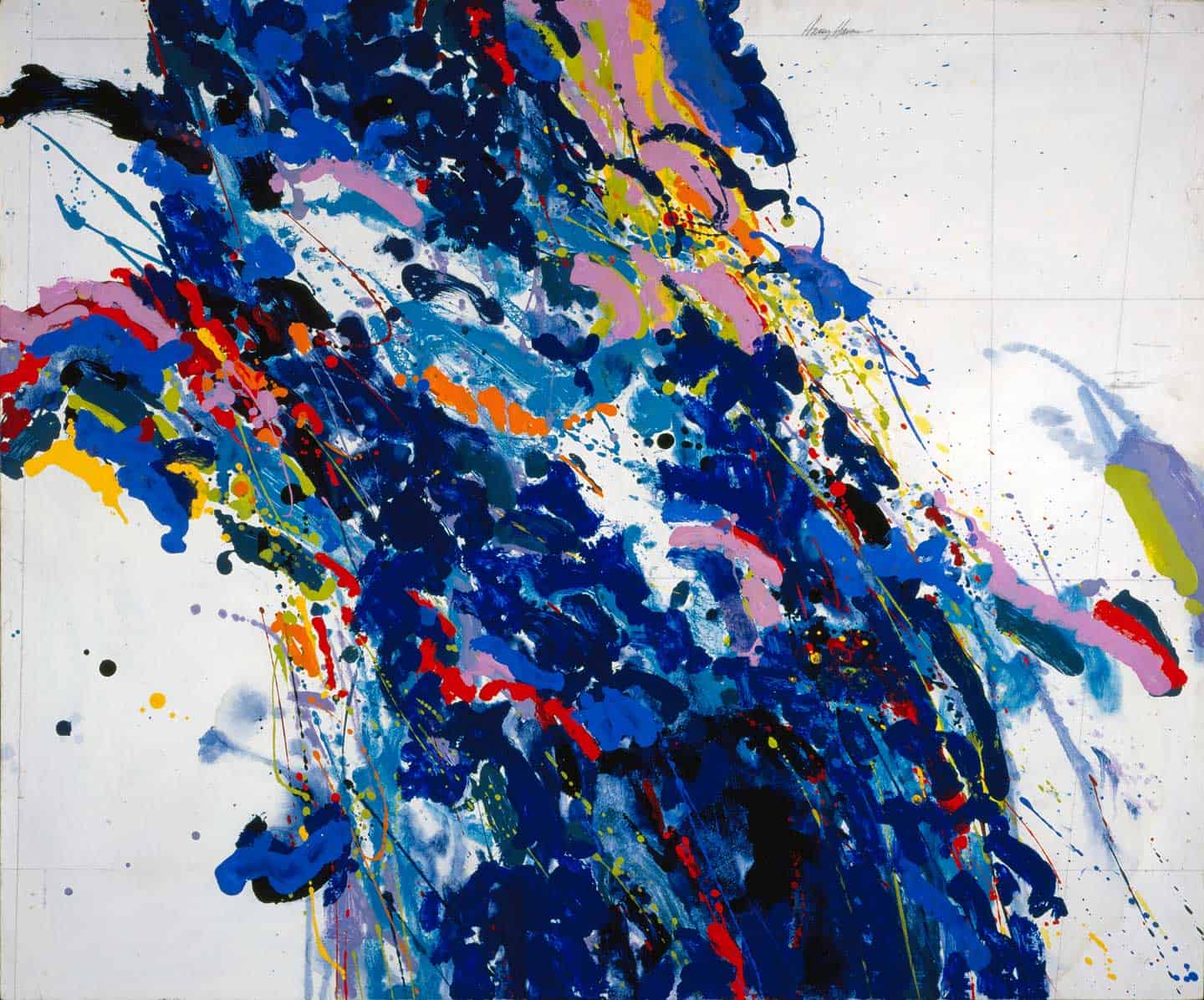
Style and Attitude: Abstract Art in the South
This exhibition examines abstraction and abstract expressionism—the dominant mode of artistic expression in post–World War II America—through a Southern lens. Few art movements are as closely associated with a specific time and place as abstract expressionism is with New York City in the 1940s and 1950s. It was the first American movement to achieve international recognition, and it put New York…
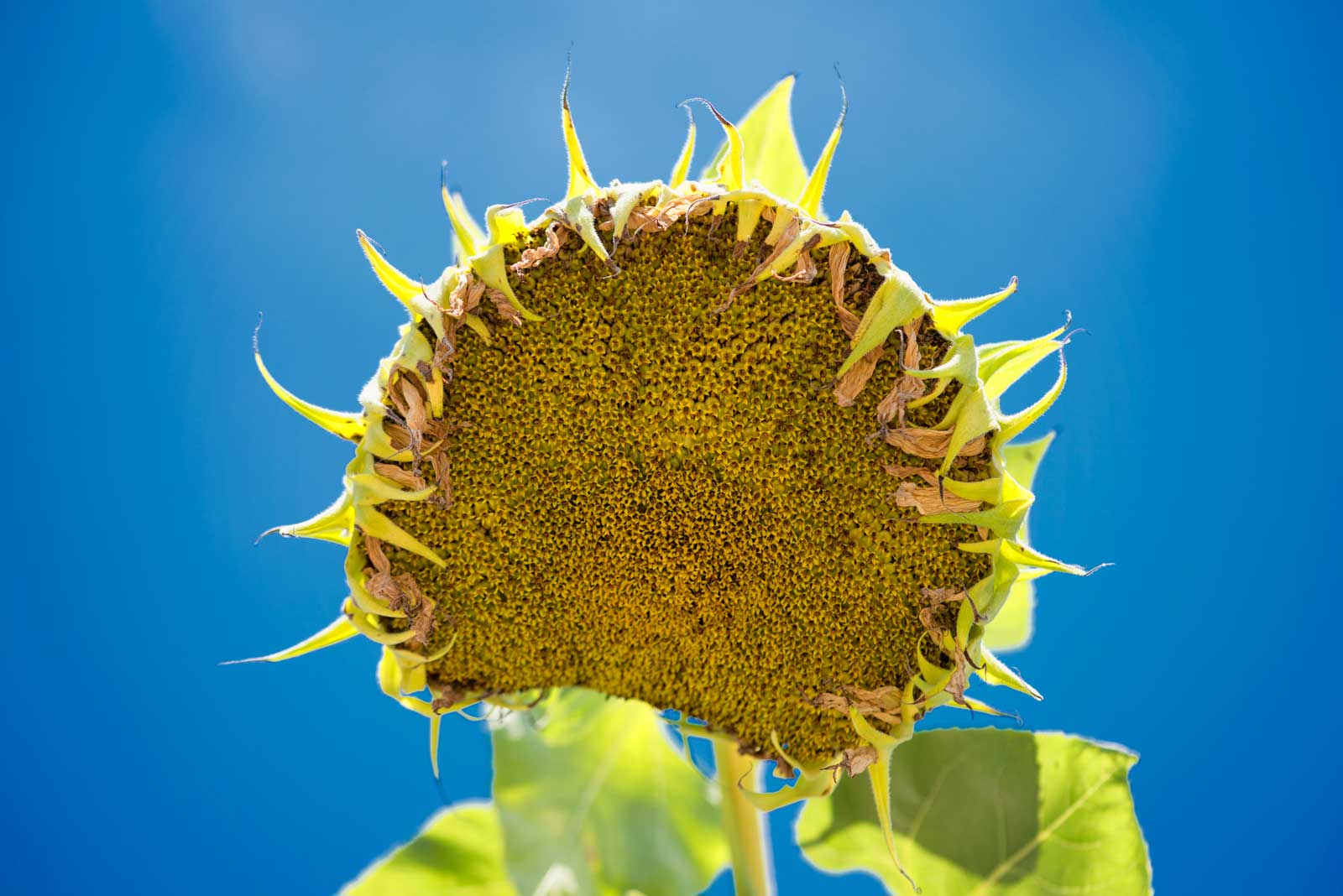
Flowers for Mom: Photographs by Elmore DeMott
Photographer Elmore DeMott earned her bachelor’s degree in mathematics and fine art from Vanderbilt University before embarking on a career in banking. From there, she moved into arts administration and then photography, in order to exercise her creative instincts and put her talents to work. Passionate about connecting people with nature, she is the creator of award-winning work in private and…
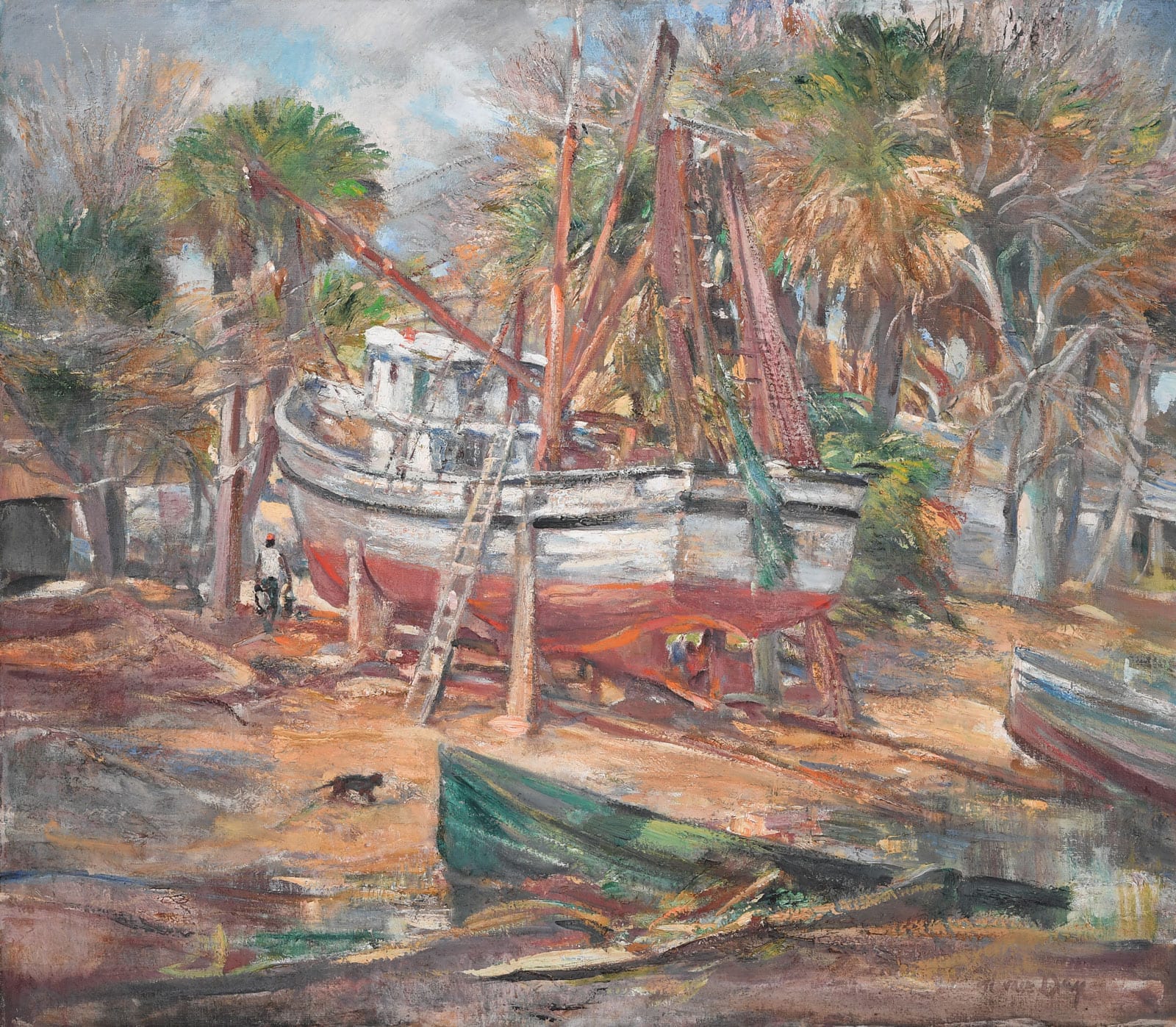
Views of Georgia and South Carolina by Horace Talmage Day
Horace Talmage Day (1909–1984) gained early recognition for his portraits and landscapes, particularly his paintings of Georgia and the Carolina low country, the subject of this exhibition. The eldest of four children born in China of American missionary parents, he was already painting accomplished landscapes by the time he was twelve. He came to the United States to attend the…
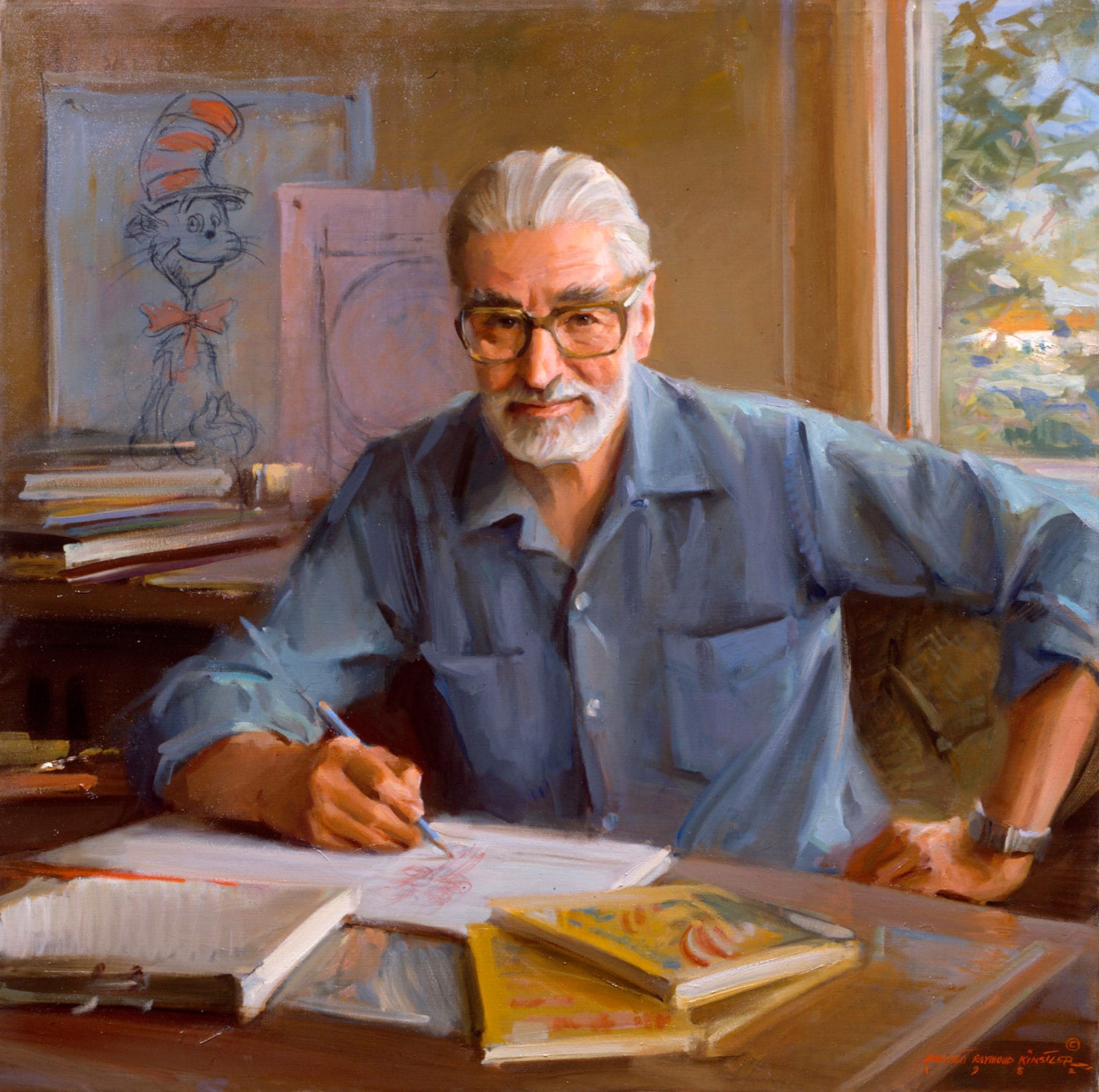
America Creative: Portraits by Everett Raymond Kinstler
Everett Raymond Kinstler, who turns ninety-two August 5, has painted more than two thousand portraits of leaders in almost every professional field, including eight United States presidents. America Creative explores how the eye of the artist sees kindred souls whose life’s work is also in the arts, whether visual, musical, performing, or literary. Kinstler’s vibrant, impressionist style imbues an otherwise…
Paintings by Edgar Hewitt Nye
Born in Richmond, Virginia, in 1879, Edgar Hewitt Nye lived, worked, and taught in Washington, D.C., for fifty-eight years. He was educated in public schools before entering the Corcoran School of Art at age thirteen, where he studied for eight years before setting off on the requisite grand tour of Europe. Along the way, he married and spent a brief time studying…
Street Scenes: The Magical World of Robert Vickrey
In the 1950s and 1960s Vickrey was a highly visible artist, included in no fewer than nine of the Whitney Museum’s annual exhibitions showcasing contemporary art. He was also commissioned to paint dozens of portraits for the cover of Time,notably a portrait from life of the Reverend Dr. Martin Luther King, Jr., for the magazine’s Man of the Year issue…
Paintings by Stephen Estrada
Stephen Estrada was born in Chicago, Illinois, and raised in Southern California. After his graduation from high school in North Carolina, where the Estrada family had relocated, he attended the Art Institute of Boston. He rented a studio in the Plant Shoe Factory, a thriving artists’ enclave, but in early 1976 fire destroyed the building and the work of more…
The Academy of Golf Art: Artists of the Game
The Academy of Golf Art marked its fifteenth anniversary in 2018 with its first-ever exhibition at the Morris Museum of Art. The exhibition included twenty-seven works—sculpture, paintings, works on paper, and photographs—by renowned golf artists Richard Chorley, Hertfordshire, England; David Coolidge, Naples, Florida; Glenn Davis, Hurst, Texas; the late Leslie B. DeMille; Dom Furore, Traverse City, Michigan; Linda Hartough, Okatie,…
Augusta Collects Southern Art
Augusta Collects included work by artists from every part of this larger South, including a traditional landscape painting by Texas artist Porfirio Salinas, Jr., and an abstract vision of the landscape of coastal South Carolina by Brian Rutenberg. Of local interest were paintings by two early directors of the Gertrude Herbert Institute of Art, Horace Talmage Day and Elizabeth Panknin Wright, as…
Alan Shuptrine: Appalachian Watercolors of the Serpentine Chain
This exhibition featured sixty beautiful, highly detailed watercolors by artist Alan Shuptrine. It celebrated the historical and cultural connections between the land and people of the Appalachian Mountains and those of the British Isles—Celtic traditions brought to America in the eighteenth century that are still present today. An artist of stunning technical precision, Shuptrine has documented the region’s rich European…
Hattie Saussy: The Rediscovery of an Artist
Born in Savannah in 1890, Saussy began making art at an early age under the tutelage of Mrs. G. A. Wilkins and her daughter Emma Cheves Wilkins, as well as Lila Cabaniss. She attended Mary Baldwin Seminary (now Mary Baldwin College) in Virginia but left after only a year to pursue focused studies at the New York School of Fine…
Jonathan Green: Selections from the Permanent Collection
Born and raised in the South Carolina low country, Jonathan Green graduated from the School of the Art Institute of Chicago in 1982. He has sustained a very successful career ever since. His paintings can be found in major museum, corporate, and private collections around the world. He is represented in the Morris Museum’s permanent collection by nearly forty works…
Acquired and Restored: Recent Additions to the Permanent Collection
The exhibition emphasized work acquired in the recent past, including landscape paintings by Max Weyl, De Lancey Walker Gill, and Ellen Axson Wilson, as well as more contemporary paintings by Rolland Golden, Steffen Thomas, Vincencia Blount, and Edward Kellogg and sculpture by Anita Huffington and Roger Dane. There were entirely new areas of collecting interest revealed here, including pottery and…
Paintings by Robin Hill
Born in Australia in 1932 and raised in England, Robin Hill developed a passion for the natural world and keen powers of observation in his youth—both qualities that are reflected in his work. His first exhibition of bird paintings, a huge critical and commercial success, in Melbourne, was quickly followed by exhibitions in Sydney, Johannesburg, London, New York, and other…
Joseph DiGiorgio: The Alabama Series
Joseph DiGiorgio was born in Brooklyn, New York, in 1931, the son of Italian immigrants. During the 1950s he studied at Cooper Union in New York City and with Hans Hofmann in Provincetown, Massachusetts. Although he did not have his first solo show in New York until 1975, his work had been exhibited widely and steadily elsewhere, beginning in the…
Marilyn Murphy: Magic Realist
Marilyn Murphy: Magic Realist featured paintings and drawings in which reality is turned upside down in dreamlike scenes, with gravity-defying objects and figures diligently focused on a task—their earnest stances belying what is always, in fact, a very strange object of study. Murphy finds inspiration for her subjects in the popular culture of the 1940s and 1950s, presenting them with…
American Paintings from the Collection of Wesleyan College
This beautiful exhibition, drawn from the collection of Wesleyan College in Macon, Georgia, featured late nineteenth and early twentieth century paintings by many of the leading artists of the era. The more than thirty paintings included in the exhibition offered a window into the styles and techniques taught at some of the most prestigious studios of New York City and…
The Blackbelt of Alabama: A Response to Home
Photographer Jerry Siegel was born and raised in Selma, Alabama, where, he says, “family and friends were most valued.” He remembers his hometown as vibrant, though small, and in most respects no different from most communities of similar size elsewhere in the South. Even though many things have changed there since his youth—it is no longer the place that he…
Rhythm and Movement: Paintings by James Michalopoulos
Painter James Michalopoulos, born in Pittsburgh, Pennsylvania, in 1951, graduated from Bowdoin College in Brunswick, Maine. Shortly afterward he moved to New Orleans, where he has lived and worked since. His richly textured, color-saturated images of New Orleans have become iconic. It is through his paintings that many have come to know the city, its denizens and architecture. Michalopoulos learned…
The Female Lens: Photography from the Do Good Fund
In January 2017 the Morris kicked off its Art Now Artist Talk lecture series with a panel discussion featuring several artists represented in the exhibition The Female Lens: Photography from the Do Good Fund. The collection began as an effort by attorney and philanthropist Alan Rothschild to preserve and showcase photography that depicts and documents the American South. Since 2012…
Billie Ruth Sudduth: Baskets from the Collection of Hathia and Andrew Hayes
Billie Ruth Sudduth is a widely acclaimed basket maker who lives in the mountains of North Carolina. A native of Sewanee, Tennessee, where she was born in 1945, she was raised in Birmingham, Alabama. She is represented in the permanent collections of the Smithsonian American Art Museum’s Renwick Gallery in Washington, D.C., the Museum of Arts and Design in New…
Unquiet Territories: Art by Cheryl Goldsleger
Born in Philadelphia, Pennsylvania, in 1951, Cheryl Goldsleger matriculated at the Philadelphia College of Art (now the University of the Arts) in 1969. She attended Temple University’s Tyler School of Art in Rome in 1971 and earned her bachelor of fine arts degree from the Philadelphia College of Art in 1973. She earned a master of fine arts degree from…
Exploring the Land: Landscapes from the Hunter Museum Collection
Exploring the Land documented American artists’ continuing fascination with the American landscape. The breadth of the exhibition, which included both nineteenth-and twentieth-century works of art, enabled the viewer to make some interesting comparisons. Exploring the Land was complemented by several little-seen works of art by Sally Mann, William C. A. Frerichs, and others from the Morris Museum’s collection.
Visual Improvisations: Sculpture by Greg Carter
Artist Greg Carter considers himself a thing maker. His fanciful sculptures spill from the artist’s intense imagination and ability to perceive a character locked inside such common items as a flowerpot, twisted branch, or discarded pipe. Carter received bachelor of arts degrees in psychology and studio art from the University of Minnesota and a master of fine arts in studio…
American Ballads: The Photographs of Marty Stuart
This exhibition was composed of more than sixty photographs from three bodies of work: “The Masters” of country music; the “Blue Line Hotshots” Marty Stuart has met on his travels on America’s back roads; and the Lakota people of the Pine Ridge Indian Reservation and others in South Dakota in the section “Badlands.” It was accompanied by a fully-illustrated hardcover…
The World of Rolland Golden
Still active at eighty-four, Rolland Golden is one of the most renowned artists to have emerged in the South during the second half of the twentieth century. In addition to the styles of realism and “abstract realism,” he is known for a style he developed, which he calls “’borderline surrealism,’ realistic imagery in a not impossible, but highly unlikely situation.”…
Folk Art in the South: Selections from the Permanent Collection
Drawn from the Morris Museum’s permanent collection, this presentation included work by some of the region’s best-known folk artists. Though the work of some of these artists may have been familiar, much of it had not been exhibited before. Folk artists’ major themes were expressed in many different ways. They employed readily accessible materials—crayons, markers, house paint—as well as found…
Paintings by Victoria Lowe
Victoria Lowe was born in 1947 in Birmingham, Alabama. She was educated at the University of Alabama where she earned a BS in education in 1969. Lowe focused on painting in graduate school at the University of Alabama, where she received an MA in Visual Arts in 1971. Over the past four decades, her paintings and drawings have focused primarily…
Pottery from the Smith Callaway Banks Southern Folk Art Collection at Georgia Southern University
Callaway Banks was an avid collector of folk art, purchasing his first piece, a face jug, in the 1980s. Until his death in 2010, Banks continued to travel the South, purchasing work and making friends with hundreds of artists. In 2007 he donated a large part of his collection, more than one thousand objects, including approximately 250 pieces of pottery,…
The Wild Treasury of Nature: A Portrait of Little St. Simons Island
Artist Philip Juras’s depictions of Little St. Simons Island made up the body of work that was exhibited here for the first time. While so much of the Southeastern seaboard has been transformed by rampant development, it seems miraculous that such an experience can still be had. Of all the barrier islands, Little St. Simons Island, off the coast of…
Scenic Impressions: Southern Interpretations from the Johnson Collection
This exhibition presented dozens of works that were intended at the time of their creation to offer relief from the hurly-burly of the urban setting. The artists represented—Wayman Adams, Colin Campbell Cooper, Elliott Daingerfield, Gaines Ruger Donoho, James Herring, Alfred Hutty, John Ross Key, Blondelle Malone, Paul Plaschke, Hattie Saussy, Alice Ravenel Huger Smith, Anthony Thieme, Helen Turner, and Ellsworth…
Creatures Great and Small, Real and Imagined: The Art of Mae and Willie Tarver
Some of these nearly two dozen fantastical sculptures were inspired by nature, while others show the uninhibited imagination of nationally known folk artists Mae and Willie Tarver. The Tarvers saw much of the world before returning to Wadley, Georgia, after many years of living in New York. In Wadley, Willie worked at Thermo King Corporation for twenty-five years as a…
Winter Dreams: Works of Art from the Permanent Collection
The present exhibition features more than forty little seen works of art—paintings, drawings, photographs, and three-dimensional objects by more than a dozen twentieth-century Southern artists. Eldridge Bagley and Jack Stoddart are represented by works featured in previous Morris Museum exhibitions, while other artists’ works have never been shown here before. There are beautiful winter scenes such as the impressionistic work…
Real Lives: Observations and Reflections by Dale Kennington
Organized by the Friends of the Mennello Museum of American Art, the exhibition featured nearly thirty paintings by acclaimed realist Dale Kennington. Born in Savannah, Georgia, in 1935, she earned a BA in art history from the University of Alabama in 1956 before marrying and moving to Dothan, Alabama. She turned to painting in her early forties because she wanted…
Decoys from the Collection of Dr. Lloyd Newberry
Dr. Lloyd Newberry, an avid big-game hunter, author, and retired educator, began collecting decoys in the late 1960s. Fascinated by the wooden birds, he took several trips northward along the East Coast from his Georgia home, seeking out fellow decoy collectors, antique shops, and carvers, purchasing a variety of hand-carved, painted birds and listening to the stories of craftsmen and…
The New American Landscape: Paintings by Robert Stark
Artist Robert Stark has lived and painted in Union Dale, Pennsylvania, for forty years. He also maintains a studio on Hilton Head Island, South Carolina, where he and his wife spend their winters. His paintings have traveled to more than 140 world capitals under the U.S. Department of State’s Art in Embassies program. He is represented in museum, corporate, and…
The African American Voice: Works from the State Art Collection of South Carolina
This exhibition included forty works of art in several media—paintings, drawings, and sculpture—from the State Art Collection of South Carolina. These artworks were created in recent times by twenty-five celebrated African American artists, all of whom have close ties to the state. The exhibition included work by famed outsider artists Sam Doyle, Leroy Marshall, Richard Burnside, and Dan Robert Miller,…
Contemporary American Studio Glass from the Collection of Eugene Fleischer
This collection, still a work in progress, was begun some years ago by Augustan Eugene Fleischer, an avid collector of many kinds of things since he was a boy. Among the glass artists represented in the exhibition are Rick Beck, Audrey Handler, Jon Kuhn, Charles Lotton, Mark Peiser, Stephen Rolfe Powell, and Lisabeth Sterling. This exhibition was accompanied by a…
Paintings by William Willis
Bill Willis is well known for abstract paintings and works on paper that are inspired by the natural world and influenced by Eastern philosophy and religion. His work—recognized with awards and grants from the National Endowment for the Arts, the Vermont Studio Center, the Pollock-Krasner Foundation, the Southeastern Center for Contemporary Art, and many others— has been the subject of…
Steffen Thomas Rediscovered
Prolific and multifaceted, artist Steffen Thomas (1906–1990) was born in Fürth, Germany, but lived most of his adult life in Georgia. Though he’s particularly noted for monumental public art, he was the master of many media, including painting (oils, watercolor, and encaustic), sculpture, mosaic, and printmaking. Much of his work exhibits the influence of expressionism, which originated in Germany early in the twentieth…
For the Birds: Folk Art Birdhouses
This exhibition was a representative sample of a large collection of birdhouses, which were acquired by the Morris over the past several years—gifts from one of the museum’s most generous supporters, collector Julia J. Norrell. To Norrell, birdhouses reflected the region’s vernacular architecture wrought small. Over the years, her childhood fascination evolved into a love for the larger world of…
In Celebration of Golf: Landscapes by Linda Hartough
Perhaps golf’s leading artist, Linda Hartough graduated from the School of the Art Institute of Chicago in 1970. She made a living as a professional artist in Chicago until 1980, when she moved to South Carolina. She painted landscapes, portraits, and horses until 1984, when Augusta National Golf Club commissioned her to paint the famed thirteenth hole, which began her…
American Dreams: Paintings by John Mellencamp
According to Mellencamp, “German painting remains the basic foundation for what I do, same as folk music is the foundation of my songs. Discovering Beckmann to me was like discovering Woody Guthrie or Bob Dylan.” Mellencamp’s paintings have been the subject of a number of exhibitions—Nothing Like I Planned at the Tennessee State Museum in 2012, and The Paintings of…
Knowledge in Depth: Sculpture by Brian Dettmer
Widely known for his alteration of preexisting media such as old books, maps, record albums, and cassette tapes, contemporary artist Brian Dettmer is a native of Naperville, Illinois. He earned a BA in fine arts from Columbia College Chicago, where his principal focus was painting. Following graduation, he worked as an artist and in positions related to graphics and signage…
An Artist’s Story: Civil War Drawings by Edwin Forbes
This exhibition, opened in conjunction with the fourth Augusta and the Civil War symposium, featured the work of a leading nineteenth-century-American landscape painter and etcher, Edwin Forbes, who first came to public attention as a very young artist for his dramatic and detailed Civil War sketches. He earned renown for the vividness and blunt truthfulness of his imagery.
From New York to Nebo: The Artistic Journey of Eugene Thomason
This exhibition was drawn largely from the Johnson Collection of Spartanburg, South Carolina, which holds the largest single body of Thomason’s paintings. It was supplemented by major works on loan from the Mint Museum, Charlotte, North Carolina; the Greenville County Museum of Art, South Carolina; the Mobile Museum of Art, Alabama; and the Morris Museum of Art.
Sculpture by Nathan Bindler
Drawn from the collections of the artist’s son and daughter, local collections, and the Morris’s permanent collection, this exhibition featured more than fifteen carved wood sculptures by Nathan Bindler, for many years a mainstay of Augusta’s cultural community. An accomplished musician and visual artist, he was the first chair violist in the Augusta Symphony for many years and taught art…
Oh! Augusta! Photographs by William Greiner
This exhibition was drawn entirely from the Morris Museum’s permanent collection and represented a group of photographs that were shot over a period of just a few days in January 2012 and was accompanied by a fully illustrated catalog. In addition to the Morris, William Greiner is represented in the permanent collections of more than sixty museums around the country,…
Art from the Collection of Jonathan Green and Richard Weedman
Over the past thirty-five years, acclaimed artist Jonathan Green and his partner and studio director, Richard Weedman, have amassed an astonishing collection of paintings, sculptures, and works on paper by African American, Caribbean, Latin American, and American artists that reflects the breadth of their interests, the cultural diversity that has contributed so vitally to the development of American art, and…
This Happy Land: Paintings by William Entrekin
One of Georgia’s leading realist painter—he often invites comparison to Andrew Wyeth—William Entrekin, a native of Rome, Georgia, and now a resident of Acworth, was represented here by more than thirty works in watercolor, oil, and egg tempera—landscapes, figure paintings, and still lifes. His work is widely collected by individuals, corporations, and museums. He leaves the viewer with the sense…
Drawings and Watercolors by James Calvert Smith
James Calvert Smith’s commissions included murals in the American Museum of Natural History and the Ford Foundation in New York, and the Library of Congress. In addition to his illustrations and cartoons, Smith also painted landscapes. The graceful union of nature and village in his scenes became known as the “Smith Style.” He spent most of his professional life in…
Generations: Turned Bowls by Ed, Philip, and Matt Moulthrop
Drawn from local collections, this exhibition represented the work of three generations of the acclaimed Moulthrop family of woodturners. Ed Moulthrop (May 22, 1916–September 24, 2003), credited as the “father of modern woodturning,” was a noted architect and professor before becoming a woodturning artist and transforming it into a widely respected art form. His son, Philip Moulthrop (born November 12,…
Soldier Artist: Conrad Wise Chapman
An ardent Southerner, Conrad Wise Chapman (1842–1910), unable to reconcile himself to the Confederacy’s loss, traveled to Mexico for a time after the Civil War. Eventually, he moved his family to Richmond, Virginia, and in 1898 sold the paintings in this exhibition to what has become the Museum of the Confederacy. They remain an important part of that museum’s collections…
Paintings by Bo Bartlett and Betsy Eby
Betsy Eby and Bo Bartlett, husband and wife, live during the winter in Columbus, Georgia, where he is active with the Bo Bartlett Center at Columbus State University. They spend their summers on an island off the coast of Maine. Their work can be found in public and private collections throughout the United States, including that of the Morris Museum…
Blues Haiku and New Monotypes by Phil Garrett
Phil Garrett studied at the University of South Carolina and the Honolulu Academy of Arts before earning a BFA at the San Francisco Art Institute in 1974. He lived and worked in the Bay Area until 1979, when he returned to South Carolina, where he has lived since. He founded King Snake Press in 1998. Blues Haiku represents something of…
King Snake Press: A Fifteenth Anniversary Overview
The Morris Museum of Art celebrated the fifteen-year history of King Snake Press with a special exhibition that featured nearly three dozen unique prints by many of the important artists who have worked with the press and its founder, Phil Garrett.
The Worlds of Hunt Slonem
A prolific painter, printmaker, and sculptor, Slonem has become best known for his neoexpressionist paintings of tropical birds, which are often based on or inspired by a personal aviary he has maintained over the years. Now one of America’s most renowned artists, his work is included in more than fifty major museum collections, including those of the Smithsonian American Art Museum,…
Released from Stone: Animal Sculpture by Jeff Birchill
Birchill set up a workspace in his backyard and started carving figures, chiefly animals, out of stone. All of his work is created by hand—that is, he carves only with a hammer and various chisels. He believes that most work done with power tools looks as if the tools controlled the artist and not the other way around. To an unusual degree, the…
Images of Hearth and Home by Eldridge Bagley
Contemporary folk artist Eldridge Bagley was born in 1945 and raised on a farm outside Kenbridge, Virginia, where he continues to live with his wife, Beth, and their son, Wade. Inspired by his home region of Southside Virginia, he began painting in 1973. He is wholly self-taught and paints, as he says, “straight from the heart.” While many of his…
Dark Corners: The Appalachian Murder Ballads: Paintings by Julyan Davis
Dark Corners interpreted traditional American, English, and Celtic ballads through images of the contemporary South. Davis noted that the folk songs that are native to the South provided him with a familiar narrative and a human history that connects to his own background. In his view, the stories may be old, but, “one only has to pick up a newspaper…
Starters: Selections from the Wells Fargo Collection
Through much of the fall, the Morris is displayed a large sampling from the Wells Fargo Collection, one of the most renowned corporate collections in the United States. The exhibition included representative examples from the company’s main areas of collecting interest—nineteenth-century American paintings, contemporary prints, photography, and art nouveau posters—and features fifty works of art in a variety of media.…
Formal Candids: Photographs by Greg Kinney
Atlanta native Greg Kinney established himself as one of Nashville, Tennessee’s leading commercial photographers. During the time he maintained his own studio, he produced the photographs that appeared in this exhibition, most of them shot in smaller communities in Middle Tennessee.
Richard Jolley and Tommie Rush: The Art of Glass
This exhibition featured sculpture by two of the leading contemporary glass artists in the country, husband and wife Richard Jolley and Tommie Rush. Jolley studied under Michael Taylor, first at Tusculum College and later at George Peabody College, where he earned his BFA degree in 1974. He pursued further study at the Penland School of Crafts. Tommie Rush earned her…
The Gladness of Nature: Paintings by Honor Marks
Honor Marks grew up in Charleston, South Carolina, and remembers slogging through the marshes of the lowcountry as a child searching for rare wildflowers with her family. Today, she continues the journey through her artwork. Drawing her inspiration from writers Annie Dillard, Edward Abbey, and Madeleine L’Engle and a host of botanical and natural history painters, Honor “transforms meticulous field…
Tradition/Innovation: American Masterpieces of Southern Craft and Traditional Art
The artists represented in Tradition/Innovation resided in Alabama, Florida, Georgia, Kentucky, Louisiana, Mississippi, North Carolina, South Carolina, and Tennessee. The beautifully crafted objects displayed symbolized, among other things, family heritage, cultural identity, and artistic inheritance. They are a vital part of the living artistic heritage of the contemporary South. Tradition/Innovation is a project of South Arts and was funded in…
“We’ll Understand it Better, By and By”: Paintings William H. Clarke
Several years ago, the Morris Museum of Art added to its holdings dozens of paintings by one of Virginia’s most admired self-taught artists, William H. Clarke, when it acquired the Southern collection of Julia J. Norrell. This was Clarke’s first one-person exhibition at the Morris Museum of Art.
North Carolina Pottery from the Collection of Dr. Nancy Farmer and Dr. A. Everette James
Recently, Dr. Nancy Farmer and Dr. A. Everette James, husband and wife and collectors of all things Southern—quilts, paintings, furniture, and pottery—donated a collection of North Carolina pottery to the Morris. These pieces were the first significant examples of one of the South’s richest decorative arts traditions to become part of the Morris’s holdings. The collection represented Seagrove, a very…
Mortal Coil: Photographs by Jennifer Onofrios Fornes
An art professor at Georgia Regents University, Jennifer Onofrio Fornes earned a BFA degree from the University of Wisconsin–Madison and an MFA degree from the University of California, Davis. She taught drawing, sculpture, installation, and photography at the University of Minnesota, Morris, prior to her present appointment.
First Lady Ellen Axson Wilson and Her Circle
This exhibition brought together eighteen of Ellen Axson Wilson’s paintings with work by such colleagues, friends, and teachers as George de Forest Brush, Chauncey Ryder, Childe Hassam, Walter Griffin, and Bessie Potter Vonnoh on loan to the Morris from some of the leading museums in the South.
Romantic Spirits: Nineteenth Century Paintings of the South from the Johnson Collection
This exhibition, the handsome publication that accompanies it, and the Johnson Collection as a whole enriches our perspective by increasing our understanding of the lives and art of the extraordinary painters whose work, though rooted in a specific time and place, is an integral part of American culture.
Images of Community: Highlights from the Julia J. Norrell Collection
The pieces included in this special exhibition were all selected from the Norrell Collection, an important part of the Morris Museum’s permanent collection. Community—as it is reflected in a sense of shared interests, beliefs, pursuits, needs, locality, or region—is a theme that pervades the Norrell Collection. As former President Bill Clinton noted in his foreword to Common Ground: Discovering Community in…
Shadows of History: Photographs of the Civil War from the Collection of Julia J. Norrell Collection
Exploring how photography documented the Civil War, this exhibition included more than thirty works by some of the most prominent photographers of the day—George Barnard, Mathew Brady, and Isaac H. Bonsall, among others. From tinytype and ambrotype portraits to rare images of African American regiments, this show highlights themes of human devastation and the impact of war on the landscape…
Images of South Carolina: Block Prints by Edna Reed Whaley
This exhibition featured the work of Edna Reed Whaley. Born in New Orleans in 1884, studied art at Sophie Newcomb College. As a young bride, she moved to Columbia, South Carolina, where she became one of South Carolina’s leading artists and arts advocates. In addition to her own artistic pursuits, she taught classes and served as the art critic for the Record…
Reflections on Water in American Painting
In this exhibition, fifty paintings from the Arthur J. Phelan Collection traced more than a century of America’s maritime and seaside history, and transported viewers from the Eastern to the Western Shores of the United States. The exhibition ranged in date from 1828 to 1945, and included masterful renderings of sailboats, warships, waterside towns, waterscapes, and harbor scenes, as well…
Portraits of Southern Artists by Jerry Siegel
A selection of Jerry Siegel’s black-and-white portraits of thirty-three iconic Southern artists—all of whom are represented by works in the Morris Museum collection—were displayed in the Morris Museum’s Coggins Gallery. Siegel studied at the University of South Alabama and the Art Institute of Atlanta. While successfully maintaining a commercial photography studio in Atlanta since the 1980s, he found his passion…
The Art of Alfred Hutty: Woodstock to Charleston
This exhibition was organized by the Gibbes Museum of Art, the largest public repository of Hutty’s work. It was accompanied by a major publication, published by the University of South Carolina Press, which is available in the museum store. One of the principal artists of the Charleston Renaissance, Alfred Hutty played important roles in two very different art colonies—Woodstock, New…
Strange Fruit: Lithographs by Joseph Norman
These Joe Norman lithographs were drawn from the museum’s permanent collection.
The Morris at Twenty
This exhibition emphasized acquisitions made over the past ten years—an unusually rich period marked especially by the addition of the Julia J. Norrell Collection, with particular strength in folk art and photography. The bequest of the Larry Connatser Art Trust added the work of an important contemporary Georgia artist, and purchases made through the Passailaigue Art Acquisitions Fund further enriched…
Golden Afternoon: English Watercolors from the Elsley Collection
This exhibition featured John Elsley’s collection of nineteenth-century paintings of Victorian-era English gardens. Assembled over the past forty years, Golden Afternoon captured images of some of the most beautiful garden designs created at the turn of the last century. The exhibition was accompanied by a fully illustrated catalog published by the Morris Museum of Art.
Office: Sculpture by Bob Trotman
As a contemporary artist, Bob Trotman is fascinated by what he describes as the “noir narrative of life at the office.” His wooden people, often surprisingly posed, evoke both humor and anxiety and, taken together, offer an absurdist vision of an imaginary corporate purgatory.
Window on the West: Views from the American Frontier
Window on the West featured highlights from the collection of Arthur J. Phelan and gave an intriguing glimpse of the American West through sixty objects, including paintings large and small, as well as gem-like works on paper in a variety of styles. Artists included Frederic Remington, Samuel Colman, Alfred Jacob Miller, Karl Bodmer, and John Frederick Kensett, and emphasized the…
Fore!: Images in Golf
Fore!: Images in Golf celebrated both the game and the special place that it holds in Augusta. The exhibition was organized by the Morris Museum with the assistance of Harmon-Meek Gallery in Naples, Florida. The exhibition included more than thirty-five works of art—photographs, paintings, and drawings by such well-known artists as LeRoy Neiman, Will Barnet, Timothy J. Clark, Ray Ellis,…
Working South: Paintings and Sketches by Mary Whyte
Working South highlighted the work of artist Mary Whyte, and was the focus of the Morris Museum of Art’s 2012 Gala.From the textile mill worker and tobacco farmer to the sponge diver and elevator operator, Mary Whyte has sought out some of the last remnants of rural and industrial workforces declining or altogether lost through changes in our economy, environment,…
Local Color: Photography in the South
Selected from the Morris Museum of Art’s permanent collection, Local Color: Photography in the South included more than thirty-five photographs dating from the mid-sixties to the present by some of the South’s most important photographers, including Dave Anderson, John Baeder, William Christenberry, William Eggleston, Janos Enyedi, William Greiner, Birney Imes, Greg Kinney, Jim McGuire, and Meryl Truett. With subjects ranging…
Preservation of Place: The Art of Edward Rice
Organized by the Morris Museum of Art, Preservation of Place: The Art of Edward Rice, was a retrospective exhibition of one of the South’s most renowned contemporary painters. It included landscape and cityscape paintings—specifically Rice’s signature images, representing the details of the vernacular architecture of Georgia and South Carolina. One of the most extensive showings of Rice’s work to-date, the…
Civil War Redux: Pinhole Photographs by Willie Anne Wright
This exhibition focused on Wright’s sepia-toned gelatin silver print photographs, all shot with a pinhole (lensless) camera, which mirror vintage photographs. Wright followed reenactors for thirteen years, capturing not the battles themselves, but the essence of mid-nineteenth-century life and the struggle and conflict of the War between the States.
Philip Juras: The Southern Frontier, Landscapes Inspired by Bartram’s Travels
This exhibition highlighted the work of painter, Philip Juras. Juras recreates Southern U. S. wilderness before European settlement. This exhibition acquainted viewers with many of the important and imperiled ecosystems that remain in the South today—remnant natural communities that benefit from greater public awareness. Juras, a native of Augusta and a graduate of the University of Georgia (where he earned…
The Charleston Renaissance: Works on Paper
Drawn from the Morris Museum’s permanent collection, the exhibition presented more than two dozen watercolors and etchings by Ellen Day Hale, Alfred Hutty, Alice Ravenel Huger Smith, Anna Heyward Taylor, and Elizabeth O’Neill Verner. In addition, it represented a remarkable period in the cultural history of the twentieth-century South. The Charleston Renaissance, a period of extraordinary cultural revival, took place…
Return of the Wanderer: Recent Works by Boyd Saunders
This exhibition highlighted the work of painter, illustrator, printmaker, and sculptor, Boyd Saunders, the distinguished professor emeritus of art at the University of South Carolina. A native Tennessean, his work reflects his lifelong interest in storytelling. Saunders’s art has carried the story of the South all over the world and has been the subject of numerous one-man shows in the United…
I Will Tell You a Place: Paintings by Brian Rutenberg
This exhibition highlighted the work of painter, Brian Rutenberg. Brian Rutenberg’s work is as grounded in Old Master painting and drawing as his sense of place and color is in coastal South Carolina, where he was born and raised. He spent his childhood exploring the coastal wetlands, developing a love for the landscape. He graduated from the College of Charleston,…
Introducing America to Americans: FSA Photography
Drawn from the Morris Museum’s extensive photography collection, the exhibition examined the important role of the Farm Security Administration and the Office of War Information in documenting life in the South in the nineteen-thirties and nineteen-forties. The images showed Americans at home, at work, and at play with an emphasis on rural and small-town life as well as the adverse…
Helen M. Turner: The Woman’s Point of View
This exhibition was organized by the Dixon Gallery and Gardens in Memphis, Tennessee, and featured three Turner paintings from the Morris Museum’s permanent collection. One of America’s premier Impressionist painters, Helen Turner began painting around 1880, when the new Orleans Art Union was formed. She moved to New York City in 1895 where she studied at the Art Students League…
Wolf Kahn Pastels
This exhibition celebrated the artist’s eighty-third birthday. Wolf Kahn is widely considered one of America’s finest landscape painters and a master of pastel. He is represented in the permanent collections of the Metropolitan Museum of Art in New York, the Whitney Museum of American Art in New York, the Museum of Fine Arts in Boston, the Smithsonian American Art Museum…
Painters’ Reel: Contemporary Painting in Georgia
Originally organized by the Museum of Arts and Sciences in Macon, this exhibition featured work by ten of Georgia’s most accomplished and famed contemporary artists, including several with long-standing ties to the Morris Museum—among them Don Cooper, Cheryl Goldsleger, Philip Morsberger, and Tom Nakashima. The work in the exhibition was distinguished by masterly technique, fantastic imagery, and a wonderful sense…
The Homeplace: Photographs by Kay DuVernet
This exhibition contained more than thirty color photographs, all abstractions from nature, by the late Kay DuVernet, a photographer and poet who was born in Albany, Georgia. DuVernet spent many years in New Orleans before returning to Albany, five years before her death at age 62. This was the first exhibition devoted to her photography at the Morris. All of…
Regional Dialect: American Scene Paintings from the John and Susan Horseman Collection
This exhibition was organized in conjunction with The Seventh Annual Morris Museum of Art Gala. The exhibition brought together fifty-seven major works of art that examined American identity in the first half of the twentieth century. The Horseman Collection includes impressive paintings by influential artists of the 1920s, 1930s, and 1940. Forty-three artists were represented in the exhibition. Regional Dialect:…
Deep Sea: Drawings by William Golding
This exhibition consisted of an array of maritime drawings by the self-taught African American artist, William O. Golding. Shanghaied from the Savannah waterfront when he was eight years old, William O. Golding chronicled his travels through a series of maritime drawings that he created near the end of his life while a patient at the U.S. Marine Hospital in Savannah.…
Response and Memory: The Art of Beverly Buchanan
This exhibition featured Beverly Buchanan, who has lived and worked in Georgia for much of her adult life. In her artwork, Buchanan depicts vernacular architecture and its environment. She constructs a narrative that serves as a metaphor for the triumph of the human spirit over poverty and adversity. Although academically trained, Buchanan utilizes the tools often associated with the self-taught…
William Christenberry: Photographs, 1961–2005
This exhibition surveyed Christenberry’s poetic documentation of southern vernacular architecture, signage, and landscape using a wide range of cameras, from his earliest Brownie photographs of the early 1960s to his later work with a large-format camera. The exhibition combined never-before-seen photographs, both old and new, with images that are now iconic, the exhibition comprised fifty vintage photographic works and one…
Emil Holzhauer: The Georgia Years
This exhibition focused on Emil Holzhauer’s images of Georgia, the locality with which he is most closely associated. Born in Schwäbish Gmünd, Germany, Emil Holzhauer arrived in America in 1906—without prospects and unable to speak English. A century later, his work is lauded as thoroughly American, in terms of its style, subject matter, and sensibility. Holzhauer favored working in watercolor…
Stories to Tell, Memories to Keep: Folk Art in the South
This exhibition highlighted the substantial holdings of this category of art in the Morris Museum’s permanent collection. Some of the artists represented in this exhibition were Lonnie Holley, Charley Kinney, Bessie Harvey, Nellie Mae Rowe, Mary Proctor, Bill Traylor, Clementine Hunter, Lorenzo Scott, Minnie Evans, and, Georgia’s own Howard Finster.
Southern Eccentric: Paintings by Larry Connatser
The Morris Museum exhibited, for the first time, a selection from its holdings of hundreds of works of art by the late Larry Connatser. Connatser developed a unique style, often using brightly colored, three-dimensional dots organized within highly intricate compositions. In 2005, the Morris Museum was bequeathed the remainder of his estate, creating the largest collection of his work in…
Nashville Portraits: Photographs by Jim McGuire
Organized by the Morris Museum of Art, this exhibtion was comprised of sixty black and white portrait photographs of classic artists such as Kris Kristofferson, Johnny Cash, Dolly Parton, Waylon Jennings, and Bill Monroe. McGuire personally selected this exhibition from more than a thousand portraits of singers, musicians and composers.
To Seek and Obtain: Recent Acquisitions by the Morris Museum of Art
This exhibition featured recent acquisitions in several representative areas of the museum’s collecting interests, including both historical and contemporary paintings by Southern artists and regional photography. Some of the artists represented were Horace Day, Jonathan Green, Rudolph Ingerle, and Sally Mann.
Inside Out: The Private World of Edith Caywood
This was the first museum exhibition in Georgia of the artist’s work. The subject matter of her work has been compared with the narratives of Eudora Welty, Flannery O’Connor, and Kate Chopin. Most of her subjects are single figures or small groups of figures set in interiors, which could be interpreted as rooms in old Southern homes or as the…
J. C. Leyendecker: America’s “Other Illustrator”
This exhibition included more than fifty original works by Leyendecker from the collection of the Haggin Museum of Art in Stockton, California, repository for the nation’s most complete collection of Leyendecker’s sketches, magazine covers, and advertisements. J. C. Leyendecker: America’s “Other” Illustrator was organized by the Haggin Museum of Art, Stockton, California. The presentation of the exhibition at the Morris…
It’s a Dogs Life: Photographs by William Wegman from the Polaroid Collection
This exhibition includes 29 photographs by one of the art world’s best known photographers. The prints on view featured Wegman’s now-famous pet Weimaraner, Fay Ray, successor to his original dog of the same breed, Man Ray. The photographs in the exhibition are typical of those produced using a special Polaroid camera, measuring 20 x 24 inches. The national tour of…
Landscape of Slavery: The Plantation in American Art
This exhibition examines plantation images in the American South, plus related slave imagery in the context of the American landscape tradition. It features more than 75 paintings, works on paper, photographs, and mixed media compositions. Landscape of Slavery: The Plantation in American Art was organized by the Gibbes Museum of Art, Charleston, South Carolina.
Realist Paintings by Bryan LeBoeuf
This exhibition gives visitors the opportunity to view the work of Bryan LeBoeuf, a young and talented artist from Houma, Louisiana. Informed by the techniques of the Old Masters, LeBoeuf’s paintings incorporate beautifully painted surfaces, careful composition, and almost Baroque lighting effects. His subject matter may be traditional in appearance but it is quite contemporary in its psychological and social…
Notes on the 19th, 20th, and 21st Centuries: Paintings by Jeffrey Kronsnoble
This exhibition includes forty-one works of art by Jeffrey Kronsnoble, dating from the late 1960s to the present. From landscapes to meticulously rendered figures, Kronsnoble’s paintings are characterized by fluent draftsmanship and an appreciation for art history. Sponsored in part by CareSouth Homecare Professionals and by First Bank of Georgia.
A. Aubrey Bodine: Baltimore Pictorialist
The Morris Museum of Art presents a representative sampling of masterworks by A. Aubrey Bodine, a photographer in the pictorialist style, who worked at the Baltimore Sun for fifty years. The exhibition was organized with the assistance of Kathleen Ewing, Washington’s most important photography dealer and author of an authoritative book on Bodine’s photography.
Something to Look Forward To: Abstract Art by 22 Distinguished Artists of African Descent
The exhibition presents abstraction by African American artists inspired by the tradition of abstract expressionism. These artists, now in their sixties and seventies, have been pioneers for a half century in both the African American community and the art world. Some of the artists included in the exhibition are Betty Blayton, Edward Clark, Melvin Edwards, Sam Gilliam, Alvin Loving, Joe…
Pleasant Journeys and Good Eats along the Way: A Retrospective Exhibition of Paintings by John Baeder
This traveling exhibition, organized by the Morris Museum of Art, includes oils and watercolors by John Baeder from the past thirty years, with emphasis on his affectionate documentation of roadside architecture.
Worth Remembering
Drawn from the Morris Museum’s own collections, Worth Remembering presents viewers with a variety of art objects, including paintings, photographs, and sculpture, that stimulate powerful associations with personal and social ideals, transcending the limitations of time and mortality.
A Collector’s Discoveries and Revelations
This exhibition is a small sampling of the many discoveries and revelations made by collector Julia J. Norrell as she assembled her collection of Southern art over the course of many years. Includes works by artists Jonathan Green, Beverly Buchanan, Eldridge Bagley, William Clarke, Nancy Witt, William Tolliver, and Stephen Kimball among others.
The Art of John Dos Passos
Known primarily as an author, John Dos Passos also spent nearly fifty years producing hundreds of paintings. This exhibition chronicles his work through a selection of over 55 of Dos Passos’s paintings. Organized by International Arts & Artists, Washington, DC, in conjunction with Lucy Dos Passos Coggin. The presentation of the exhibition at the Morris Museum of Art is sponsored…
Beyond This World: Paintings by Lorenzo Scott
This exhibition celebrates the paintings of self-taught artist Lorenzo Scott which are inspired by his study of the Renaissance and Baroque masters.
Abbot, Audubon, Catesby, and Wilson: Naturalists in the South
This exhibition features prints and paintings by some of the most important artist-scientists to have worked in the South. The works of art were selected by curator Jay Williams from the permanent collection of the Morris. Sponsored in part by Georgia Power Company.
Genomes and Daily Observations
A supplement to the exhbition Abbot, Audubon, Catesby, and Wilson, this installation by Suzanne Stryk consists of her drawings (reminiscent of those of Catesby of Abbot), a naturalist’s desk piled with biological specimens, and a mirror imprinted with a section of the human genome. Sponsored in part by Georgia Power Company.
Philip Morsberger: A Passion for Painting
The Morris Museum of Art presents this world-class collection of paintings from local and international favorite, Philip Morsberger. Morsberger’s work is in major collections on both sides of the Atlantic, including those of the San Jose Museum of Art, the San Francisco Museum of Modern Art, the Butler Institute of American Art, the Columbus Museum of Art in Ohio, the…
To Be a Virginian Where I Grew Up: Paintings by Eldridge Bagley
Interpreting the life and landscape of rural Virginia over the course of more than twenty years, Eldridge Bagley’s paintings comprise one of the richest segments of the museum’s Julia J. Norrell Collection, from which this exhibition is drawn.
American Art Pottery from the Moody Collection at the Hickory Museum of Art
This exhibition of over one hundred thirty pieces celebrates the gift of Frances Johnson Moody to the Hickory Museum of Art in Hickory, North Carolina.
Tom Nakashima: Two Decades
The exhibition surveys the work of Tom Nakashima, William S. Morris Eminent Scholar in Art at Augusta State University. It includes his most recent series of paintings, the “treepiles” and “orchardhouse” paintings.
Jacob Lawrence: The Frederick Douglass and Harriet Tubman Series of 1938–40
The Frederick Douglass and Harriet Tubman series are among Jacob Lawrence’s greatest achievements as a painter. At times powerfully exquisite, at other times raw, even awkward, their rough magic and expressive strength speak to us through time of two of the most important episodes of African American history. Organized by the Hampton University Museum. Sponsored in part at the Morris…
An Unbroken Circle: Selections from the Collection of Julia J. Norrell
The Julia J. Norrell collection includes paintings, photographs, prints, drawings, sculpture, and folk art drawn from the portion of Ms. Norrell’s collection related to the American South. An Unbroken Circle gave viewers an opportunity to enjoy some of the notable works of art included in the collection.
Nostalgic Journey: American Illustration from the Collection of the Delaware Art Museum
Nostalgic Journey includes the work of some of America’s most respected illustrators and documents the influence of printing technology on their images. Illustrations for books and periodicals have been an important part of the American visual experience for the last one hundred fifty years. They were created by at least fifteen thousand trained, professional artists, most of whose names are…
Our Neighbors Collect: African American Art
Working in cooperation with the Morris Museum’s Friends of African American Art, the museum has assembled an exhibition representing work held in local private collections. Many of America’s most important African American artists have roots in the South—something that is often reflected in their work—and, early in the twentieth century, many of them became very influential. Limited resources often led…
Zelda by Herself: The Art of Zelda Fitzgerald
This exhibition of watercolors, as well as a section of Zelda Fitzgerald’s paper doll constructions, represents the recurrent themes in her late work. The images include nostalgic scenes from her life during the Jazz Age, fantasy pieces that revolve around well-known fairy tales, and biblical works that were created toward the end of her life when she was overcome by…
Human Foibles and Tender Mercies: The Photography of Lyle Bongé
The Morris Museum of Art presented Human Foibles and Tender Mercies: The Photography of Lyle Bongé, a selection of images of Mardi Gras shot by Bongé from the early 1960s through 1974. A native of Biloxi, Mississippi, where he was born in 1929, Lyle Bongé was educated at Black Mountain College. A photographer since 1955, his work has been widely…
By Native Hands: Native American Baskets from the Lauren Rogers Museum of Art
The exhibition features sixty-five baskets from the Lauren Rogers Museum of Art, many of which have never been loaned before. Most of the baskets were produced between 1850 and 1910, by artisans representing more than forty North American tribes from across the continent. This collection features baskets of all types: from the small burden baskets of the Klikitat in the…
Realizations: The Art of Hubert Shuptrine
The exhibition celebrates the distinguished career of Chattanooga-native Hubert Shuptrine (1936–2006). The exhibition, drawn from museum and private collections around the southeast, includes nearly thirty of Shuptrine’s watercolors and is accompanied by a catalogue of the same title.
The Murphys of Savannah: A Family of Painters
This collection of works was culled from the Morris’s permanent collection and organized by Karen Towers Klacsmann, Adjunct Assistant Curator for Research. Each of the four artists represented in the exhibition made significant contributions to the cultural climate of Savannah.
The Songs of Maybelle Stamper
The Songs of Maybelle Stamper includes over eighty works on paper produced primarily while Stamper lived in the South, on Captiva Island, Florida beginning in the mid-1940s. While Stamper’s works refer to her experience of the natural world, they also spring from a deeper source, the world of imagination and dreams. In order to express spiritual and psychological truths as…
What Dogs Dream: Paintings and Works on Paper by William Dunlap
In this 2006 gala exhibition the artist explores the landscape of the mind and through his use of allegory, animism, and elements of language, he sheds light on the cultural landscape of the South. William Dunlap has distinguished himself as an artist, arts commentator and educator, during a career that has spanned more than three decades. The exhibition was sponsored…
Salmagundi Club: An American Institution
From a modest beginning, the Salmagundi Club has grown to more than six hundred members including artists, non-artists, and exceptional people in the entertainment and business community. Salmagundi Club: An American Institution represented a survey of the club’s history including more than sixty works of art, photographs, and the coveted Salmagundi Club medal. Exhibition presentation courtesy of the Salmagundi Club…
Illuminated Literature: The Art of Jerry and Brian Pinkney
Jerry and Brian Pinkney, father and son, have given form and color to stories that have shaped the values of a generation of children. The works in this exhibition were selected from eleven of the many great books that Jerry and Brian Pinkney have illustrated. Brian Pinkney’s scratchboard drawings have illustrated such books as In the Time of the Drums,…
An American Story: The Wyeth Family Tradition of Art
Over the past two decades, the public has shown a growing fascination with the paintings of the Wyeth family. This exhibition enlarges the public’s view of this famous clan, supplementing the trio’s paintings with work by four other talented members of the family circle. An American Story: The Wyeth Family Tradition of Art was organized by the Delaware Art Museum.…
The Cumberland Plateau: Photographs by Jack Stoddart
The Morris Museum of Art acquired a set of Jack Stoddart’s Upper Cumberland Collection of photographs in 2003 and here exhibits it for the first time in The Cumberland Plateau: Photographs by Jack Stoddart. During the seventies, Jack Stoddart worked in a sawmill and as an assistant to a veterinarian, while living in a primitive log cabin. All the while,…
Cheryl Goldsleger: utopia
For the series utopia Cheryl Goldsleger created mixed-media paintings based on the work of women architects, assuming the viewpoint of the female architects she encountered in her research. Cheryl Goldsleger: utopia was organized by the Museum of Contemporary Art of Georgia, Atlanta.
Passionate Observer: Eudora Welty among Artists of the Thirties
This exhibition presents Eudora Welty’s photographs of the 1930s together with paintings, drawings, prints, and photographs by notable American artists of the era—offering comparisons between Welty’s artistic motivation and other visual interpretations of the times. The Passionate Observer: Eudora Welty among the Artists of the Thirties tour was organized by International Arts & Artists, Inc., Washington, D.C. The exhibition is…
Heartland Memories: The Prints of Jackson Lee Nesbitt
This exhibition examines the length of printmaker Jackson Lee Nesbitt’s career. It includes the first etching he produced as a professional artist in 1935 as well as the last, in 1993. Nesbitt’s mentors included Thomas Hart Benton, one of the leading artists in the regionalist movement, characterized by realistic depictions of everyday scenes from the American Midwest and Deep South.…
Red Grooms: Selections from the Complete Graphic Work
This national touring exhibition covers more than 40 years of printmaking by the internationally-known artist, Charles Rogers “Red” Grooms. Organized by the State Museum in Grooms’s hometown, Nashville, Tennessee, it reveals the practiced hand of a lifelong master draftsman and a perfectionist who has experimented with all facets of printmaking. The exhibition consists of 130 objects including both two and…
Lord, Remember Me! Photographs by Stanley Lanzano
Stanley Lanzano’s photographs of revival meetings at small, African American churches in the South Carolina Lowcountry are eloquent and powerful witnesses to an American cultural tradition. Lanzano, vacationed at Pawleys Island resort in 1993 and visited a small African American congregation, where he heard Georgetown’s the Reverend Floyd Knowlin, an itinerant preacher. After a half-dozen trips back to South Carolina…
Rhythms of Life: The Art of Jonathan Green
The exhibition features 30 paintings spanning two decades by the native South Carolina artist drawn from both public and private collections. Rhythms of Life: The Art of Jonathan Green was organized by the Gibbes Museum of Art. The exhibition’s presentation in Augusta was made possible in part by Bold American Catering, Atlanta Gas Light Company, ElliottDavis, and Pollock Company.
The Faculty Show: Recent Work by ASU & USC/Aiken Art Department Faculty
The Faculty Show is a survey of recent works of art by the full-time instructional staff of Augusta State University and the University of South Carolina at Aiken. The exhibition was limited to one art work per artist, with the choice of the particular work left to the artist. Faculty members whose work is included in the exhibition include Albin…
A Northern Adventure: The Art of Fred Machetanz
Organized by the Anchorage Museum of History and Art and the Anchorage Museum Association, the exhibition is accompanied by a catalogue—of the same title—by Kesler Woodward.
Once Upon a Picture: The Art of Marc Brown
This exhibition is made up of original illustrations by the creator of the popular Arthur Adventure book series, which developed into the PBS television series Arthur. It includes many of Brown’s delightful pencil, pen-and-ink, and watercolor illustrations featuring the ever-popular characters and stories he has created. This exhibition was originally organized by the Erie Art Museum, Erie, Pennsylvania, with the…
Ray Ellis in Retrospect: A Painter’s Journey
Ray Ellis in Retrospect: A Painter’s Journey, the first retrospective of Ellis’s work, includes dozens of paintings from the 1970s to the present, documenting a fifty-year career. Organized by the Telfair Museum of Art, Savannah, Georgia; sponsored in part by Wachovia Wealth Management.
Walker Evans and James Agee: Let Us Now Praise Famous Men
This exhibition illuminates Walker Evans’s changing perception of his own work through both editorial and philosophical revisions, and now, more than sixty years after its original publication, the book Let Us Now Praise Famous Men reasserts the still poignant truth of Agee and Evans’s vision. The exhibition is drawn exclusively from original materials now preserved at the Harry Ransom Humanities…
Rolling Stone Press: Selections from the Permanent Collection
Established in 1984, Rolling Stone Press has published more than one hundred fifty editions by many of the most important artists in the Southeast. The Morris Museum collection includes work by William Christenberry, Don Cooper, Pat Courtney, John Koegel, and others. This selection demonstrates the Morris Museum’s ongoing commitment to the development of a significant collection of contemporary art that…
William Christenberry: The Tenant House Paintings
The exhibition, organized by the Morris Museum of Art, features work by one of the most widely collected and admired Southern artists. It is made up of early paintings, work that marked an important turning point in Christenberry’s career. William Christenberry is represented in virtually every major museum in the country, as well as corporate and private collections too numerous…
The Elemental Nude: Recent Sculpture by Anita Huffington
Anita Huffington has achieved noteworthy success over the length of her more than 30-year long career as a sculptor. The fluid and graceful forms of her sculpture evidence Huffington’s aspirations and training as a dancer. A dancer who studied with Martha Graham, Huffington’s affinity for all the arts soon put her in the company of poets, musicians, sculptors, and painters.…
Point of View: American Folk Art from the William and Ann Oppenhimer Collection
The exhibition features more than 85 works of art by fifty artists—including Howard Finster, Bessie Harvey, and Noah Kinney—collected over thirty years by William and Ann Oppenhimer of Richmond, Virginia. Organized by the Marsh Art Gallery, University of Richmond Museums, Virginia. A seventy-two-page catalogue published by University of Richmond Museums accompanies the exhibition.
Janos Enyedi, Made in America: The American Industrial Landscape—Reconstructed
This retrospective exhibition highlighting the recent mixed media works of Janos Enyedi was organized and presented by the National Museum of Industrial History, Bethlehem, Pennsylvania, in association with the Smithsonian Institution. The exhibition is presented through a generous contribution from Altria Group, Inc. Additional support was provided by the AFL-CIO and private contributions. The exhibition is accompanied by a fully-illustrated…
Richard Jolley: Sculptor of Glass
The is the first retrospective exhibition highlighting the bold and intricate work of one of this country’s leading glass sculptors, Richard Jolley. The exhibition, organized by the Knoxville Museum of Art, comprises dozens of objects dating from 1984 to the present. It is accompanied by a fully-illustrated catalogue.
Recent Acquisitions: African American Art in the South
The Morris Museum of Art began the new year with an exhibition of nineteen works of art by nine prominent African American artists which were added, through gift or purchase, to the museum’s permanent collection during 2003. Particular highlights include major works by Hale Woodruff, Emma Amos, Elizabeth Catlett, Bessie Nickens, Purvis Young, and Lorenzo Scott.
Jack Spencer: Photographs from Native Soil
The exhibition of photographs, recently acquired for the museum’s permanent collection, was first published in Jack Spencer’s first book, Native Soil (Louisiana State University Press, 1999). Together, these works provide a concise survey of the field and darkroom techniques with which the artist has captured the haunting and evocative spirit of the Mississippi River Delta.
Baby-Boom Daydreams: The Art of Douglas Bourgeois
The fascinating work of acclaimed figurative artist Douglas Bourgeois is the subject of this major retrospective exhibition. The exhibition, which includes more than 60 paintings spanning the length of Bourgeois’s 25-year long career, was organized by David S. Rubin, Curator of Visual Arts at the Contemporary Arts Center of New Orleans and is accompanied by a fully-illustrated color catalogue (published…
Edward Rice: Recent Monotypes
Recent works of North America and Europe by artist Edward Rice are featured in Edward Rice: Recent Monotypes. The exhibition is accompanied by a fully-illustrated color catalogue that features brief essays by Phillip Garrett, David Houston, June Lambla, and Edward Rice. The exhibition was made possible in part by the support of Pat Knox and H. M. Osteen.
The Low Country: Paintings by Preston Russell
This exhibition, organized by the Morris Museum of Art, features paintings that were published in Russell’s The Low Country: From Savannah to Charleston, Paintings by Preston Russell (2003).
A Century of Progress: Twentieth Century Painting in Tennessee
This exhibition features the work of more than 60 artists who lived or painted in Tennessee during the past 100 years. The traveling exhibition organized by the Cheekwood Botanical Garden and Museum of Art, Nashville, Tennessee, is accompanied by a fully illustrated catalogue published by the Tennessee Historical Society.
The Walter O. Evans Collection of African American Art
This exhibition features more than seventy paintings, sculptures, drawings, and photographs by many of the most important American artists of the past century and a half. The exhibition catalogue features eighty full-color illustrations, scholarly contributions by Andrea Barnwell, Tritobia Hayes Benjamin, Kirsten Buick, and Amy Mooney, as well as a reflective essay on collecting by Walter O. Evans. It is…
Japonisme: The Influence of Japanese Art in the South
This exhibition includes prints and watercolors by several artists connected to the South whose work demonstrates the widespread influence of Japanese aesthetics on Western art in the nineteenth and early twentieth centuries. Works in this exhibition were borrowed from the Gibbes Museum of Art in Charleston, South Carolina, and from the Columbia Museum of Art, in Columbia, South Carolina.
Walking the Log: Memories of a Southern Childhood: Paintings by Bessie Nickens
Selected works by self-taught artist Bessie Nickens are featured in an exhibition of her work. Many of the paintings in the exhibition appear in Nickens’s book of reminiscences Walking the Log: Memories of a Southern Childhood (New York: Rizzoli Publishers, 1994).
Martha Simkins Rediscovered
Selected works by American painter Martha Simkins are featured in the first major retrospective exhibition of her work. The traveling exhibition was organized and curated by Robert A. Horn of New York City in association with Martha Simkins, Inc., and sponsored by Roger E. Saunders and Mr. and Mrs. Jim Eitelman. A fully illustrated color catalogue accompanies the exhibition with…
Rituals: Works on Paper by Romare Bearden
This special exhibition of screenprints by Bearden, an acclaimed master of the medium, is highlighted by his Prevalence of Ritual Suite, which was recently acquired by the Morris Museum. The images in the suite—all dramatically large and, characteristically, brilliantly designed and colored—derive from some of the Bible stories Bearden learned to love as a child in Charlotte, North Carolina. The…
Charleston in My Time: The Paintings of West Fraser
The exhibition showcases West Fraser’s plein-air paintings of city landmarks, lowcountry scenes, and glimpses of life along streets and lanes, marshes, and rivers. An accompanying book features two introductory essays by friend and collector Ted Phillips and art historian Angela Mack. Organized by the Charleston Renaissance Gallery.
Modernism in the South: Mid-Twentieth-Century Works in the Morris Museum Collection
This exhibition examines the influence of modernism on Southern artists, specifically those represented in the museum’s permanent collection. Accompanied by a catalogue by Marilyn Laufer.
Robin Hill’s Birds
Selected works by artist Robin Hill.
Henry Casselli: Master of the American Watercolor
This thirty-year retrospective exhibition of watercolorist Henry Casselli presents the full range of his work. From combat in Vietnam, to NASA missions, to portraits of the famous including Ronald Reagan, John Glenn, and Muhammad Ali, Casselli portrays his subjects with personal observation and attention. Known primarily as a painter of people, he also explores such recurring themes as ballet dancers,…
Jack Leigh: The Land I’m Bound To
This exhibition was organized by the Telfair Museum of Art in Savannah, Georgia. In Augusta, the exhibition is generously underwritten by Young at Art, an affiliate organization of the Morris Museum of Art.
Personal Visions: Southern Self-Taught Art
This exhibition highlights works from the museum’s collection that were created by self-taught artists over the past fifty years. Whether described as “outsider art,” “visionary art,” or “self-taught art,” it is work characterized by spontaneity and eloquence of expression. It is art that stands apart from the mainstream, not bound by art history or traditions. It is art shaped by…
Maritime Memories: The Art of William O. Golding
Maritime Memories: The Art of William O. Golding chronicles the life and art of African American self-taught artist William O. Golding. It features selected works from the Morris Museum of Art’s permanent collection and the Charleston Renaissance Gallery in Charleston, South Carolina.
Western Perspectives: Wilson Hurley and George Carlson
Kesler Woodward, North and South
Paintings from opposite corners of the continent are featured in an exhibition titled Kesler Woodward, North and South. The exhibition features landscapes of Alaska and the Carolinas by an artist who grew up in Aiken, South Carolina, and has spent most of his adult life as an artist, art professor, curator, and art historian in Alaska. Organized by the Morris…
Myth, Memory and Imagination: Photographs from the Collection of Julia J. Norrell
Photographs of sharecroppers, country churches, river baptisms, and other classic images of the rural South were featured in this exhibition which was drawn from a larger nationally traveling exhibition organized and circulated by the McKissick Museum, University of South Carolina.
The Sporting View: American Sporting Art from the Collection of Robert B. Mayo
Paintings, drawings, and illustrations dealing with the topics of hunting and fishing showcase the role of these sports in American art history. The works have been selected from the collection of 19th- and 20th-century sporting art assembled by Robert Mayo of Virginia.
Freeman and Cora Schoolcraft: A Tribute
In the exhibition Freeman and Cora Schoolcraft: A Tribute, the Morris Museum of Art recognizes the contributions made to the Augusta arts community in the second half of the twentieth century by Freeman Schoolcraft and his wife, Cora, artists who inspired and nurtured a circle of students and artists. A publication accompanies the exhibition.
Berry Fleming: August Artist and Author
Augusta-born Berry Fleming is one of the city’s best known writers, gaining national fame as the author of more than twenty novels including the popular Colonel Effingham’s Raid. His first love, however, was painting. The exhibition is accompanied by a publication featuring essays by Starkey Flythe, William Harper, and Edward Rice.
Mark Catesby
English naturalist Mark Catesby is considered by many to be the founder of American ornithology. Catesby made two expeditions to the southern part of colonial America in the first half of the eighteenth century. His images of flora and fauna influenced the style of later artists, notably John Abbot and John James Audubon.
Art and Nature: The Hudson River School
Featuring 27 paintings by such noted artists as Thomas Cole, Asher B. Durand, Frederic Church, Jasper Cropsey, Sanford Gifford, John Kensett, David Johnson, John Casilear, and George Inness, the exhibition was organized from the collection of the Albany Institute of History and Art in New York. Tour organized by Smith Kramer, Inc.
John Abbot: Early Georgia Artist and Naturalist
While he has been compared to fellow artist and scientist John James Audubon, John Abbot focused his life’s work in the state of Georgia. On display at the Morris Museum of Art are paintings from the permanent collection of the Morris as well as works on loan from Robert M. Hicklin, Jr.
William Halsey
Collages, assemblages, and sculptures celebrating the distinguished career of William Halsey are on exhibit. A noted modernist, known as a pioneer of abstract painting in the South, Halsey drew inspiration from Charleston, South Carolina, the historic city he loved. The exhibition was organized by the Greenville County Museum of Art as part of the South Carolina Arts Commission’s millennial celebration,…
Philip Morsberger: Paintings and Drawings from the Sixties
Figurative paintings from the 1960s heavily influenced by the political climate and pop art trends of the of the time offer audiences a different perspective on the work of Philip Morsberger. The exhibition features paintings drawn primarily from the Butler Institute of American Art in Youngstown, Ohio, with additional works borrowed from Miami University Art Museum, Oxford, Ohio; Columbus Museum,…
Subdued Hues: Mood and Scene in Southern Landscape Painting, 1865–1925
Estill Curtis Pennington has selected landscapes from the Morris Museum’s collection and from ten other museums and four private collections to address the question of how landscape painting in the South differed from works created in the same time period by American artists in other areas of the country. In the exhibition and the accompanying catalogue, Mr. Pennington explores the…
The Charleston Renaissance
This exhibition, the most comprehensive study of the art of this period, features works created in Charleston, South Carolina, from 1915 through the 1940s. The Morris Museum will also showcase 32 complementary works by significant artists from its permanent collection in the exhibition. Organized by the Greenville County Museum of Art, The Charleston Renaissance was curated by Martha R. Severens,…
Robert Stackhouse: Major Works
This retrospective exhibition, organized by the Morris Museum of Art, and the accompanying catalogue offer a comprehensive overview of Stackhouse’s life and work to the present date. The exhibition will include representative examples from his earliest works and his noted A-frame structures of the 1970s through his works of the 1990s. Organized by the Morris Museum of Art and curated…
Robert Gwathmey: Works from Southern Collections
This is a small, focused exhibition designed to showcase a single painting from the Morris Museum’s collection in the context of other works by the same artist. Organized by the Columbus Museum, Columbus, Georgia, the exhibition brings together works from the collections of seven Southern art museums. It opened in Columbus in October 1998, spotlighting the painting entitled Sunday Morning,…
Sojourners Abroad: Southern Women Artists in Europe
Evidence abounds to challenge the idea that Southern women artists studied and worked in relative obscurity and isolation during the past 120 years. As part of an ongoing research project, the Women Artists Committee at the Morris Museum of Art found that the artists presented in this exhibition followed traditional paths of art study that were available in this part…
Heirs of Magic Realism: Representation in Current Dutch Painting
This special exhibition, which showcases the work of a dozen Dutch artists, was put together by Estill Curtis Pennington. With this exhibition, Mr. Pennington introduces to us the work of artists who reflect both a concern with the solidity of things in the formal composition of their work, and an implied subliminal narrative theme. In so doing, he also finds…
Wolf Kahn: Southern Landscapes
This exhibition presents a distinctive body of original pastels and oil paintings inspired by the environment of Augusta, Georgia, and the surrounding region, all created by one of America’s most respected contemporary landscape painters. The installation also offers a rare opportunity to study the diverse stages in the working process of a major artist.
Haunter of Ruins: Clarence John Laughlin
A special exhibition of 65 photographs by Clarence John Laughlin, Haunter of Ruins: Clarence John Laughlin is originated by the Historic New Orleans Collection and is circulated by Curatorial Assistance, Los Angeles. The exhibition is accompanied by a catalog, a Bulfinch Press book published by Little, Brown in 1997, and features excerpts from Laughlin’s writings and letters as well as…
Spirit of the North: The Art of Eustace Paul Ziegler
This retrospective exhibition of nearly one hundred paintings, drawings, etchings, and illustrative works by Eustace Paul Ziegler, one of Alaska’s most beloved artists includes works drawn from Alaska collections, the Pacific Northwest, Hawaii, California, Georgia, and New York, and represents a collaborative venture between the Anchorage Museum of History and Art, and the Morris Museum of Art.
Augustus Vincent Tack: Landscape of the Spirit
Augustus Vincent Tack: Landscape of the Spirit was organized by the Phillips Collection in Washington, D.C. This is the first retrospective exhibition ever devoted to the career of American visionary painter Augustus Vincent Tack. The exhibition debuted at the Phillips Collection in 1993 before beginning a national tour.
The West in American Art: Selections from the Bill and Dorothy Harmsen Collection of Western Americana
The museum of painting in the South takes on a Western look with this special exhibition which includes approximately 60 paintings exploring our fascination with the American West. Organized for national tour by the Colorado Historical Society in Denver, Colorado, the paintings have been selected from the William and Dorothy Harmsen Collection of Western Americana which is important both for…
On the Road with Thomas Hart Benton: Images of a Changing America
A exhibition exploring the travels of Thomas Hart Benton as inspiration for some of his most significant works is on display at the Morris Museum of Art in Augusta before going on a national tour. Curated by J. Richard Gruber the exhibition features some twenty paintings and more than fifty-five drawings and will travel under the auspices of Smith-Kramer Fine…
1997 Exhibitions
• Celebrating Southern Art: A Fifth Anniversary Exhibition (November 20, 1997–February 1, 1998) • American Icons: From Madison to Manhattan, the Art of Benny Andrews, 1948–1997 (September 4–November 2, 1997) • Arless Day: Recent Collages (June 19–August 2, 1997) • The Southern Scene (May 22–November 1, 1997) • Nobody Knows the Trouble I’ve Seen: The Art of Lamar Baker (May…
1996 Exhibitions
• Southern Arts & Crafts, 1890–1940 (November 7–December 29, 1996) • Aiden Lassell Ripley and Artists of the Southern Scene (October 1, 1996– January 31, 1997) • Ida Kohlmeyer: Recent Works (September 5–October 20, 1996) • Echoes& Late Shadows: The Larger World of Southern Impressionism (June 6–August 18, 1996) • Southern Impressionists on Paper (June 6–August 18, 1996) • 20th…
1995 Exhibitions
• Martin Johnson Heade: The Floral and Hummingbird Studies from the St. Augustine Historical Society (November 11, 1995–February 15, 1996) • Gracious Plenty: American Still-Life Art from Southern Collections (November 9–December 31, 1995) • Upland Game Birds: Watercolors by Robin Hill (October 18, 1995–April 22, 1997) • Frank Stella: Imaginary Places (September 28–October 22, 1995) • Robert Rauschenberg: Major Printed…
1994 Exhibitions
• The Dot Man: George Andrews of Madison, Ga.(September 7–December 31, 1994) • Alfred Hutty on Paper (August 15–December 21, 1994) • Vividly Told: Contemporary Southern Narrative Painting (May 19–August 14, 1994) • Jasper Johns: Collecting Prints (March 10–May 8, 1994) • Victorian Visionary: The Art of Elliott Daingerfield (January 13–March 5, 1994)
1993 Exhibitions
• Light of Touch: Select Works on Paper (October 24, 1993–January 2, 1994) • John Bodeker Savage: A Georgia Painter Rediscovered (September 8–October 17, 1993) • Will Henry Stevens: An Eye Transformed, A Hand Transforming (July 15–December 31, 1993) • The Art of Josephine Sibley Couper (April 15–June 28, 1993) • To Take Flight: Ornithological Art from the Permanent Collection…
1992 Opening Exhibition
• A Southern Collection (September 1992–March 1993)
